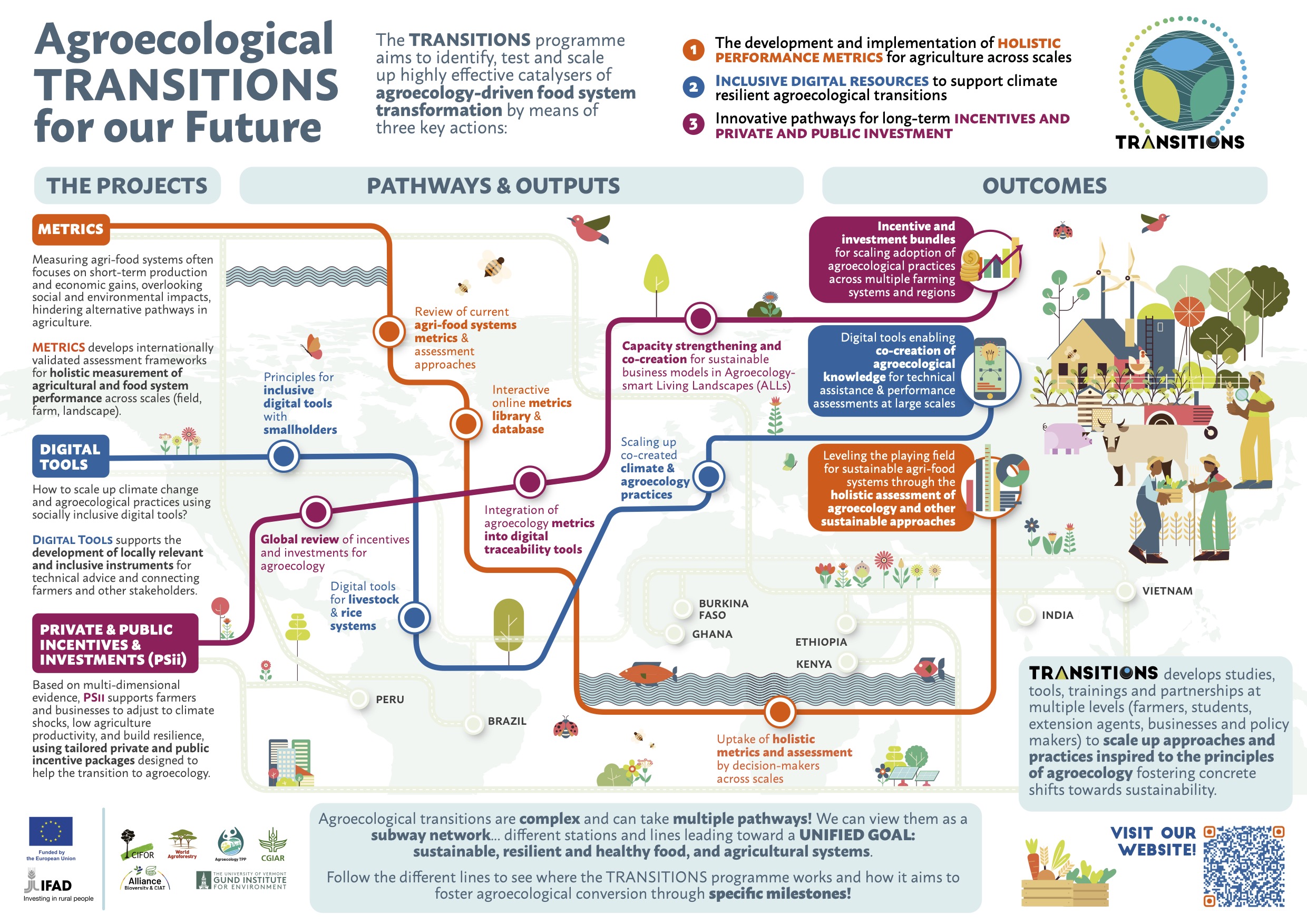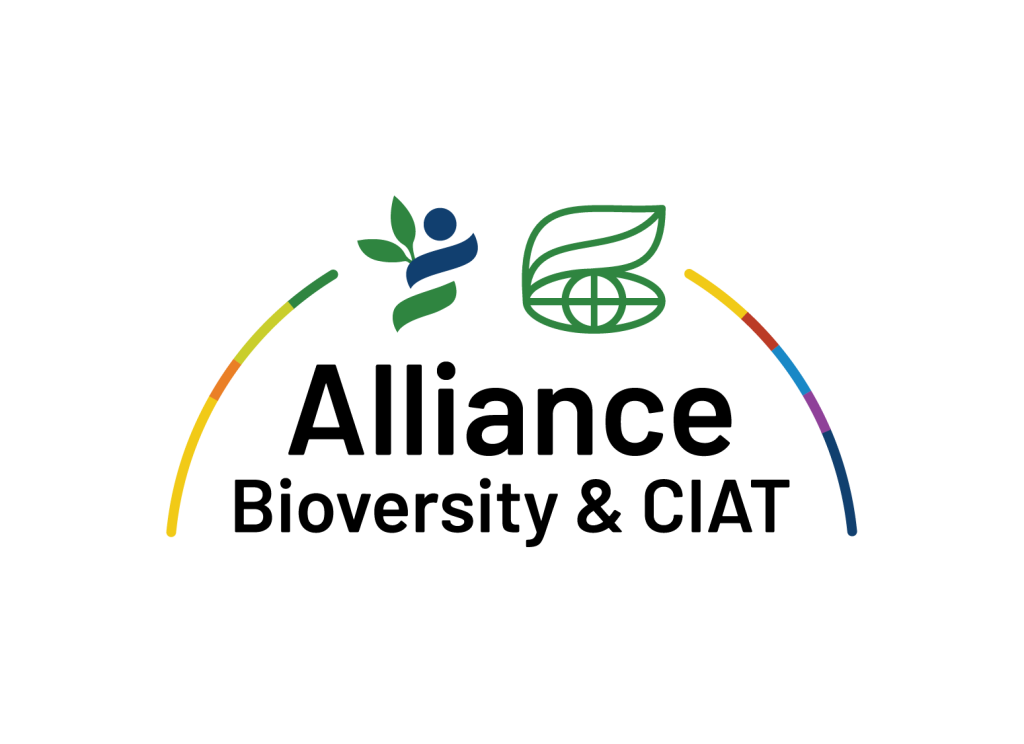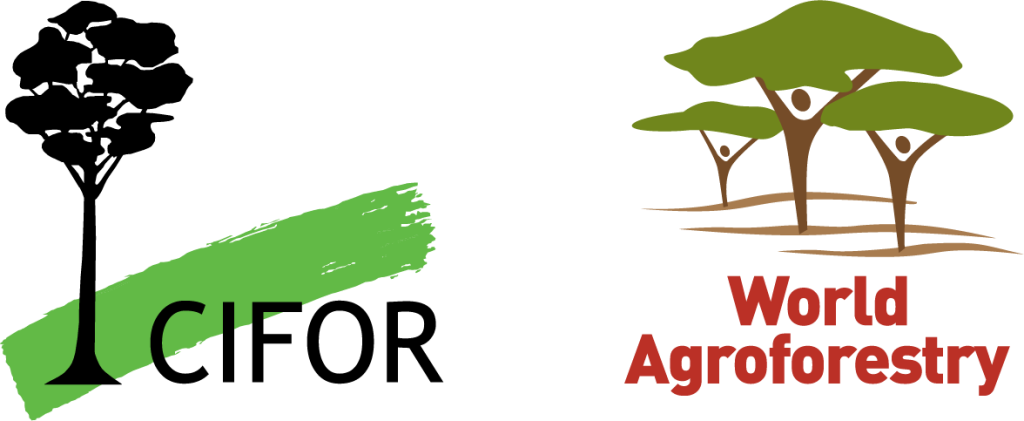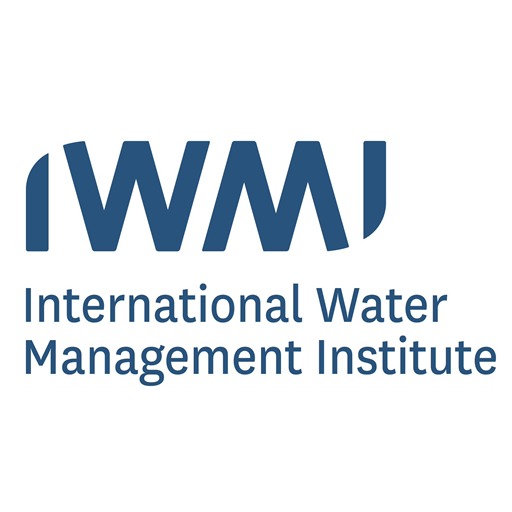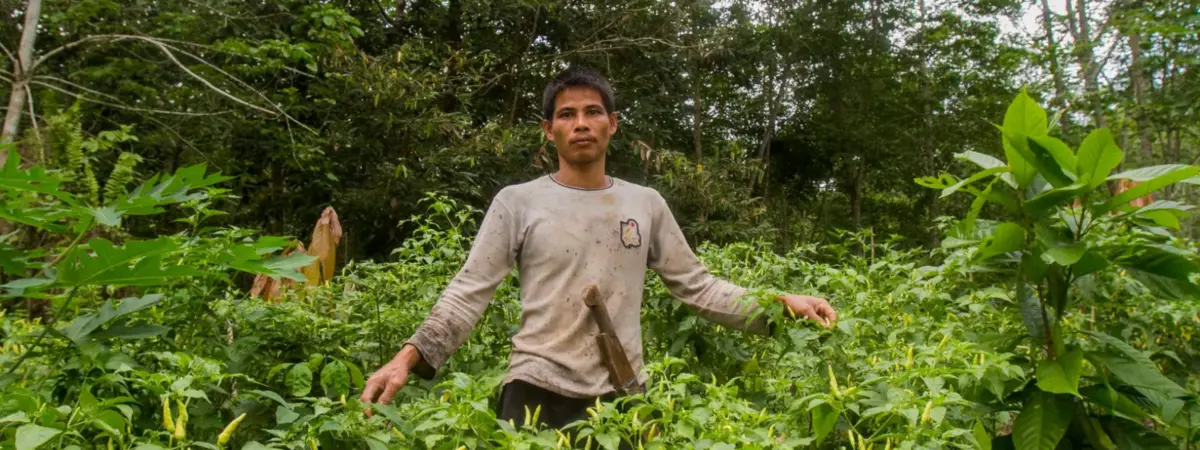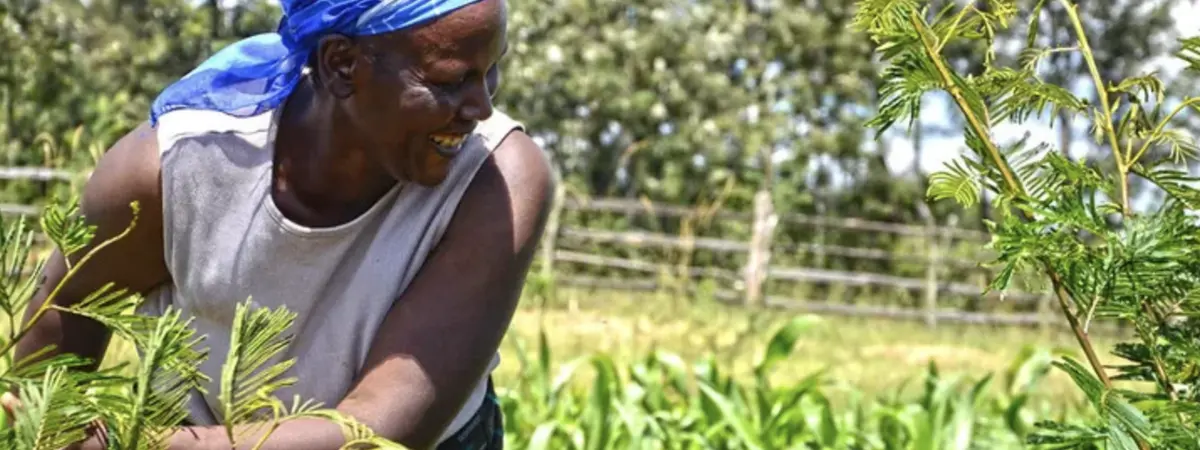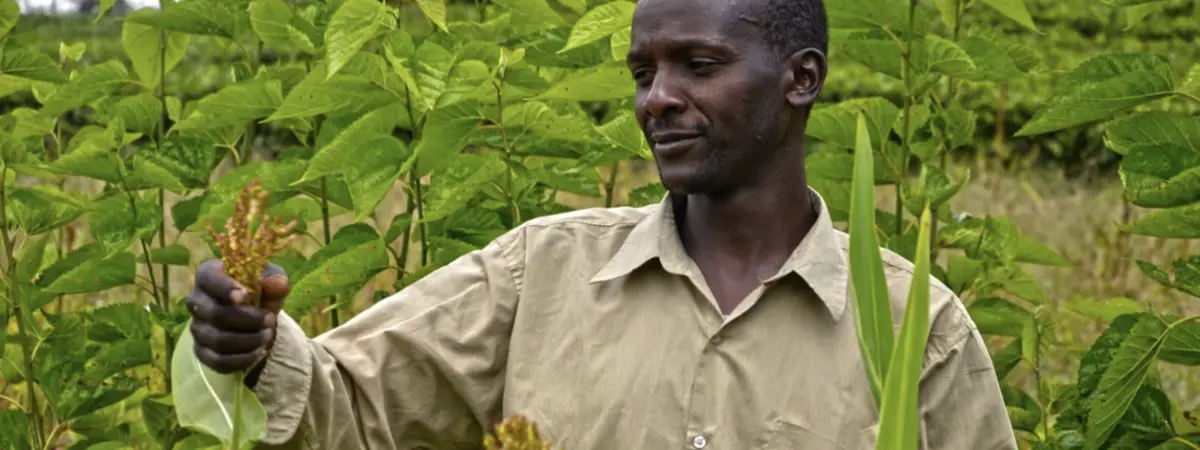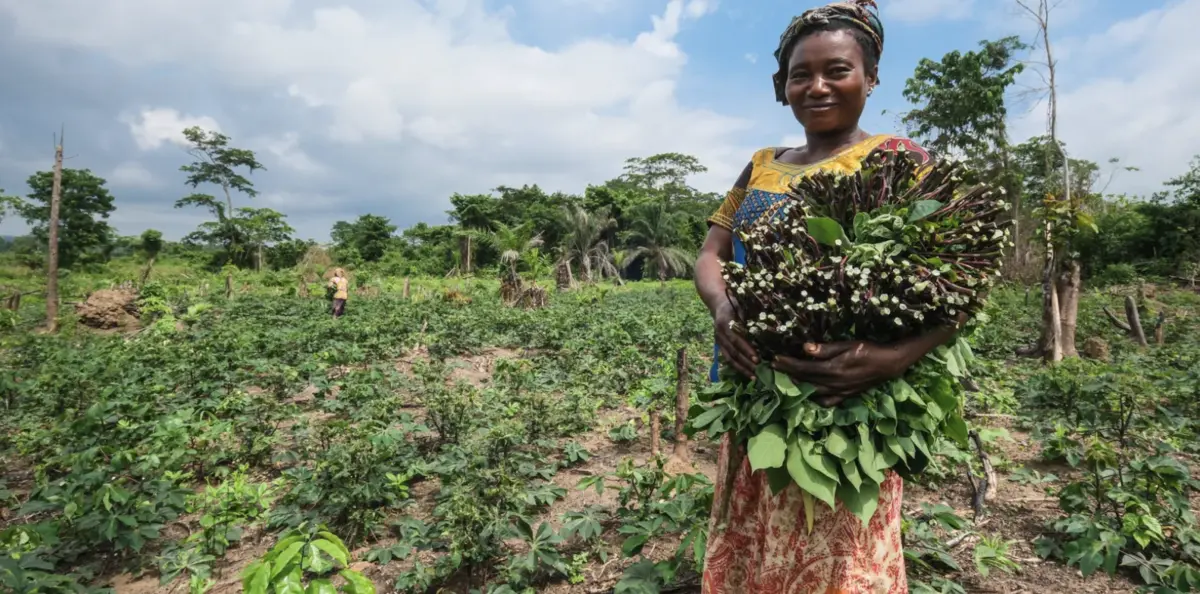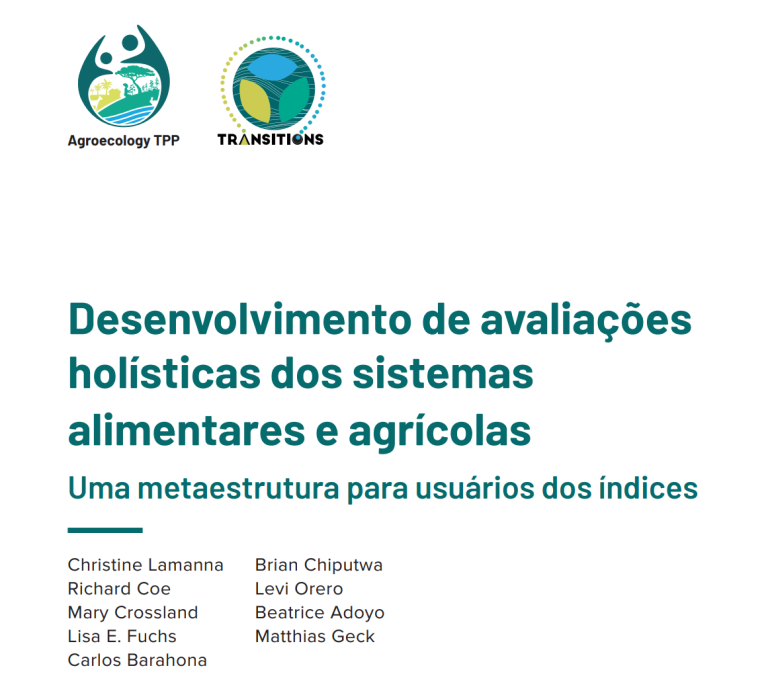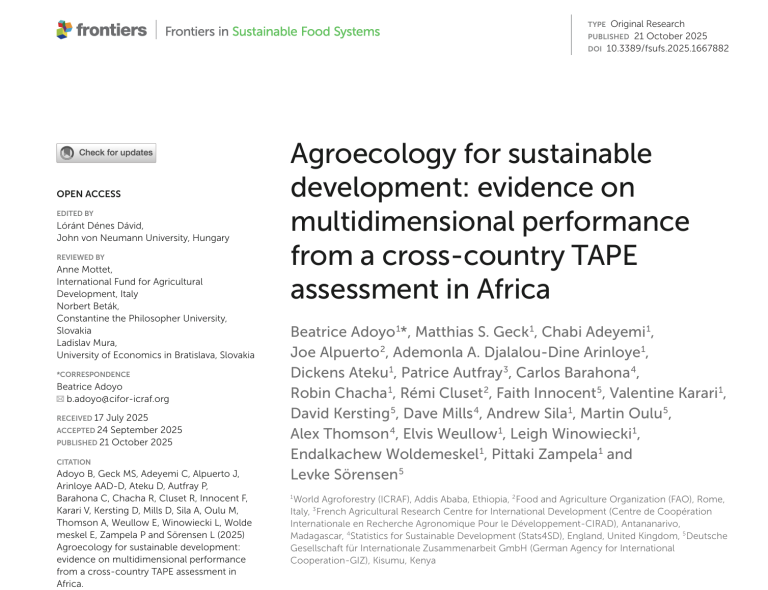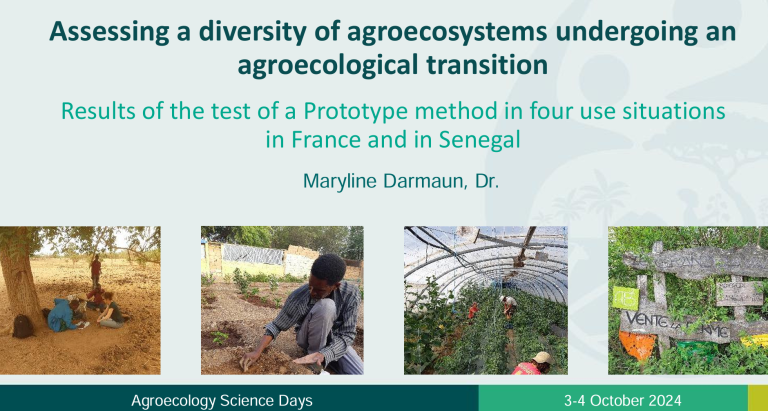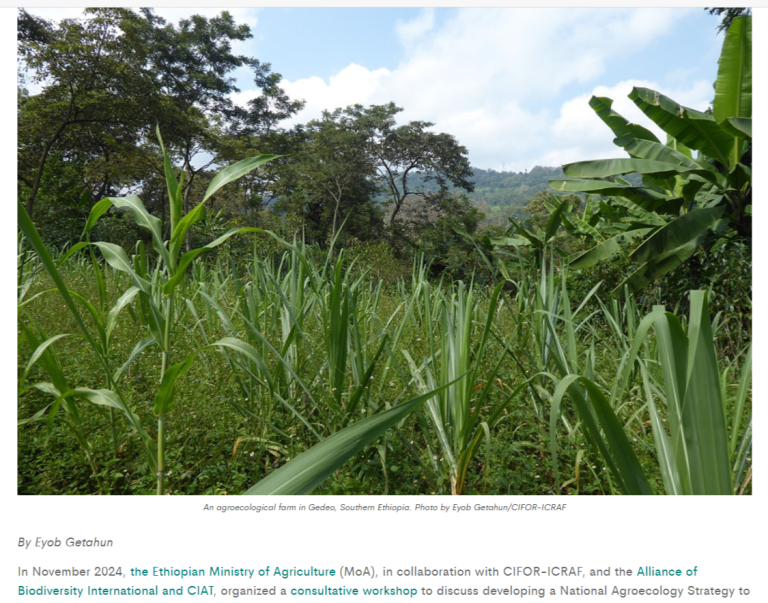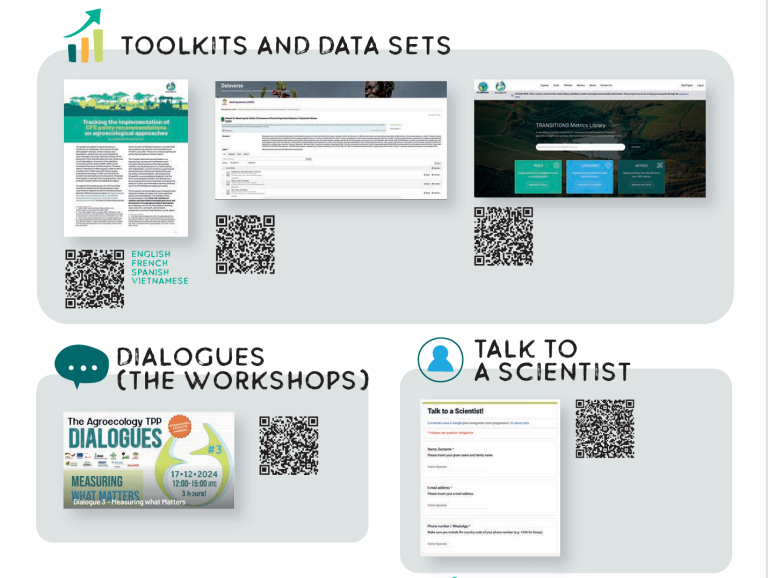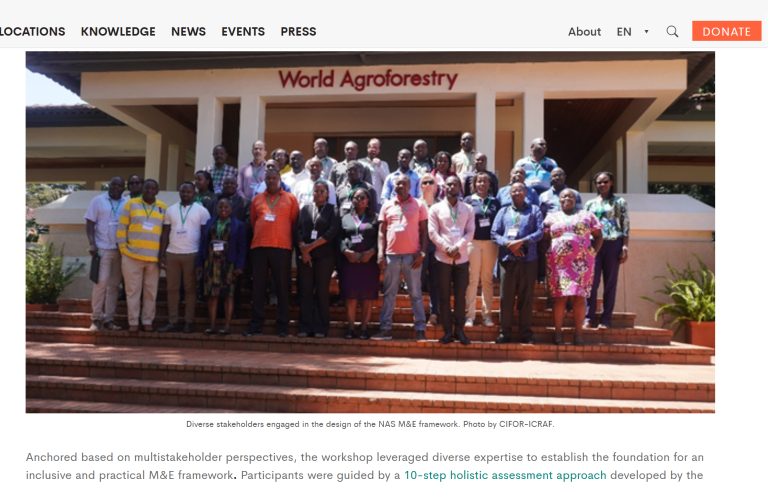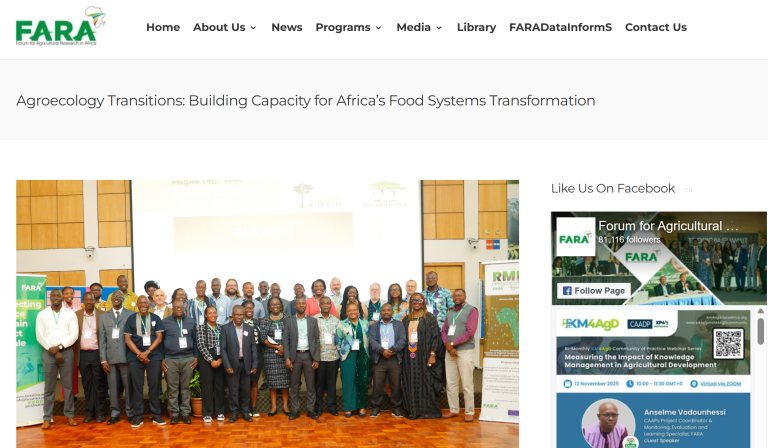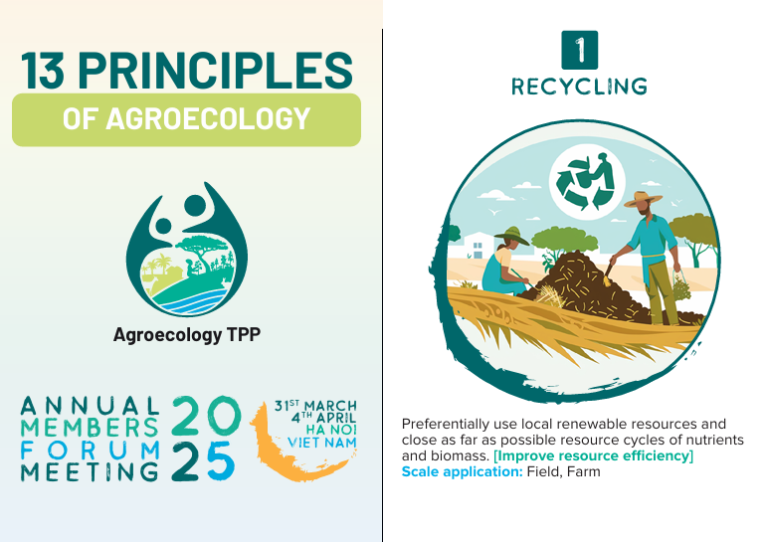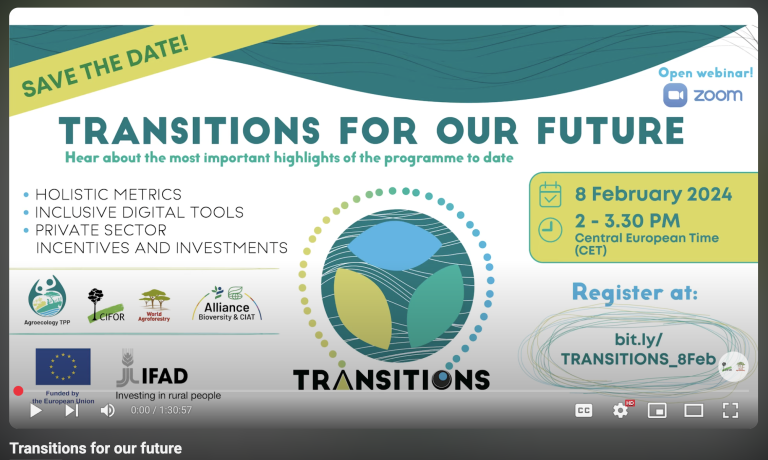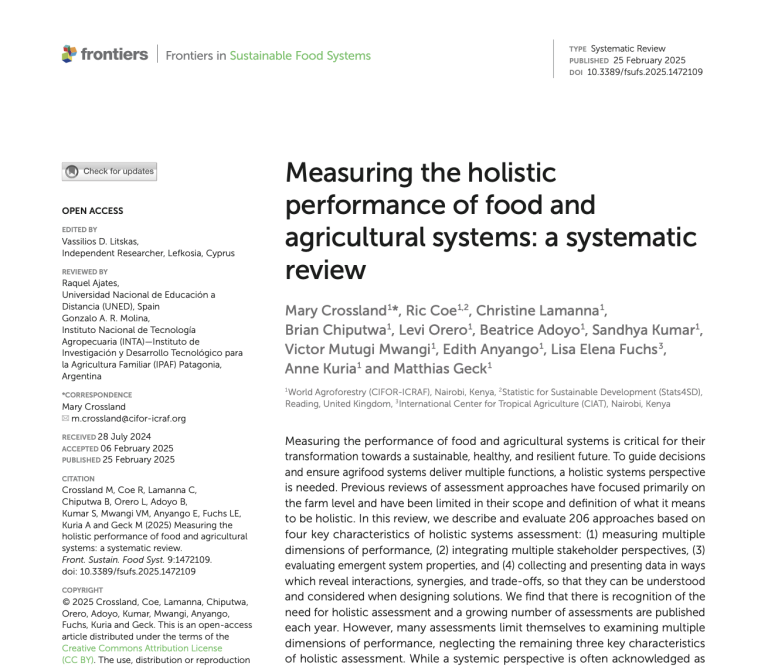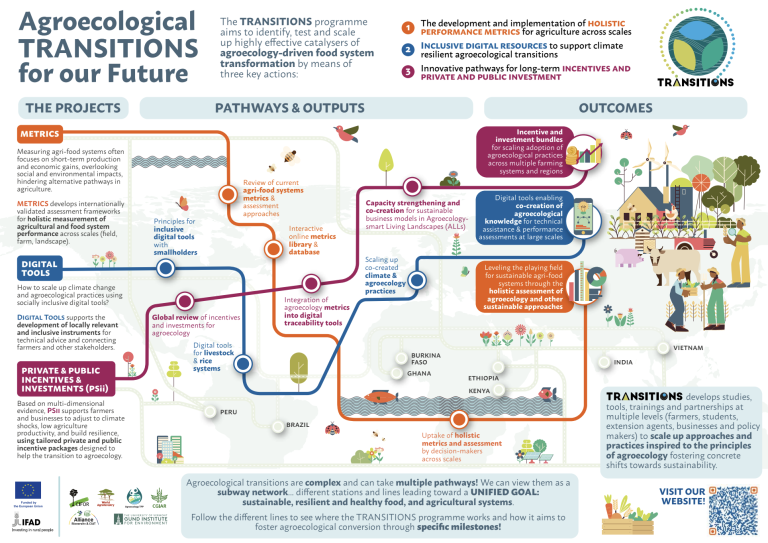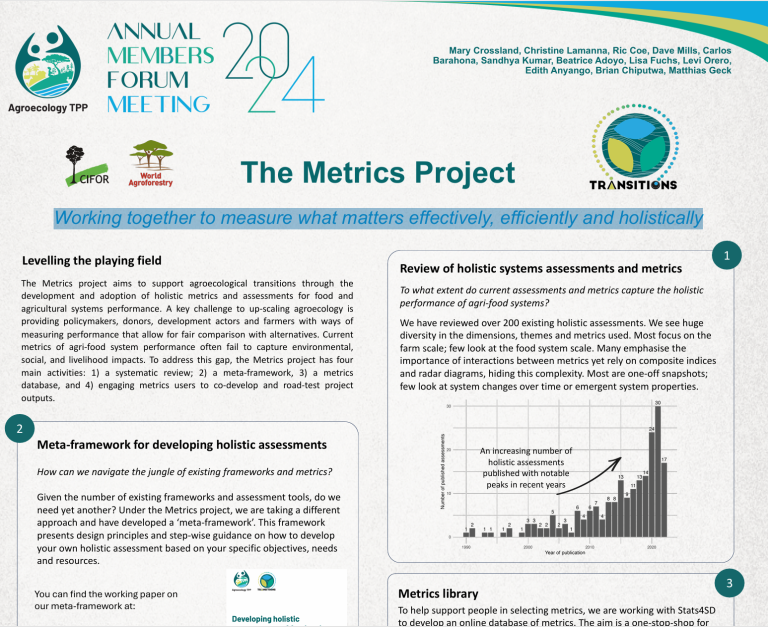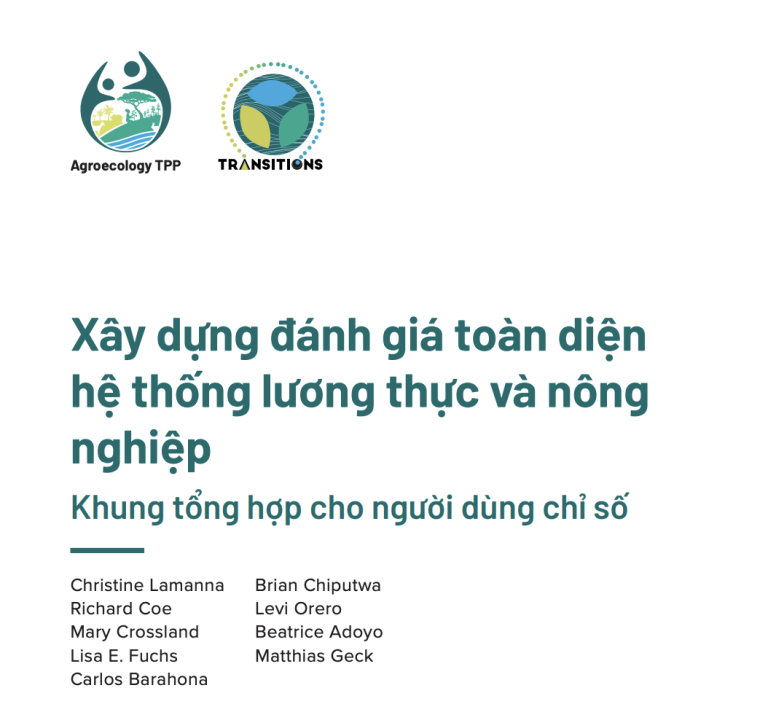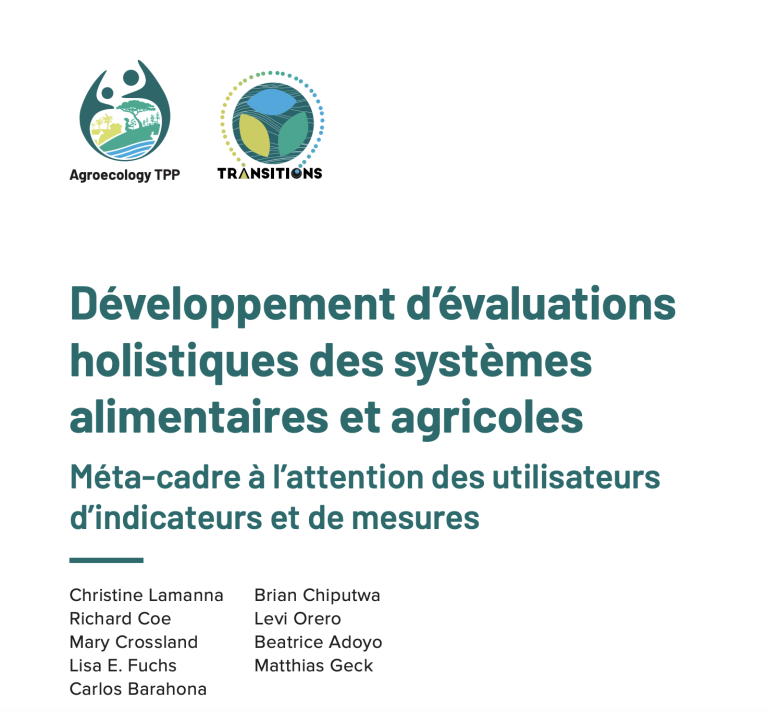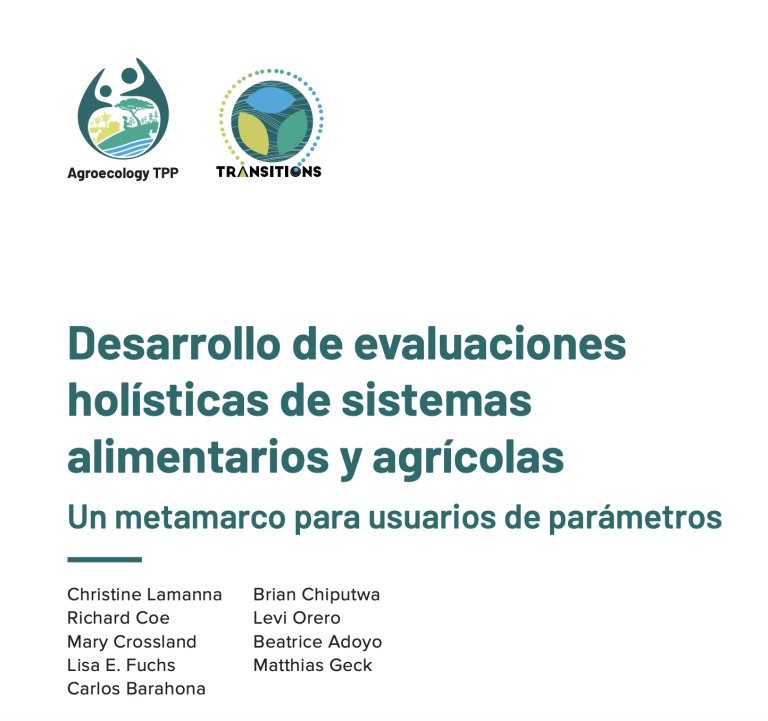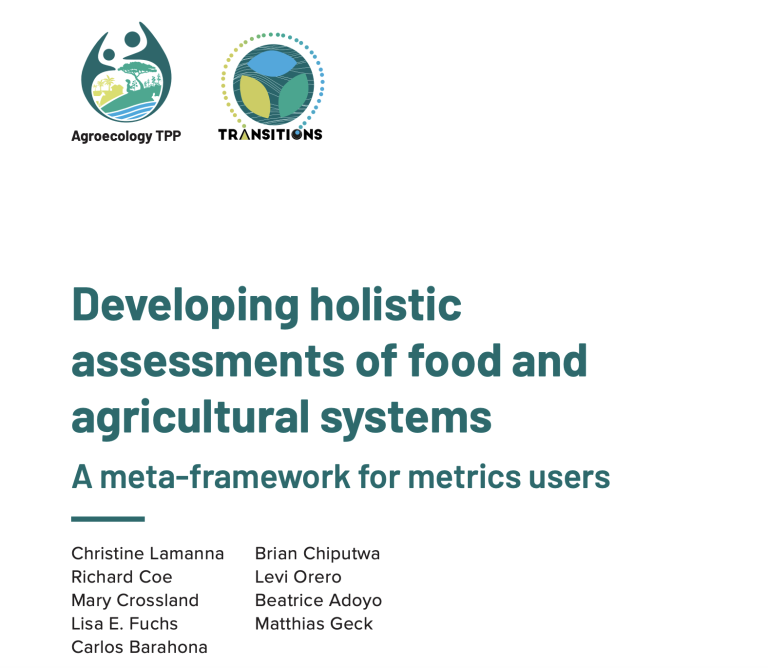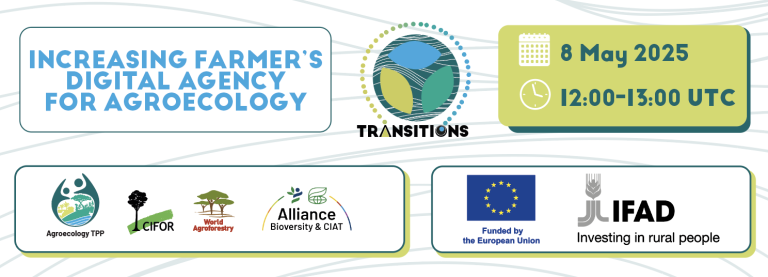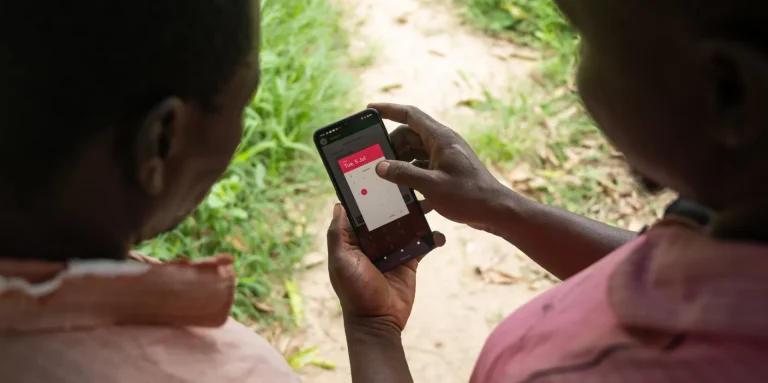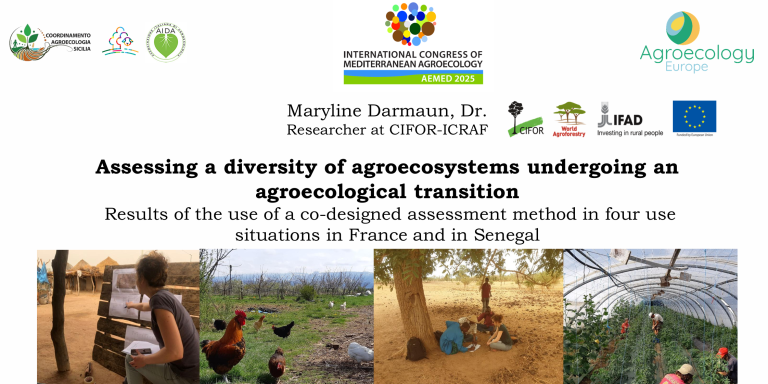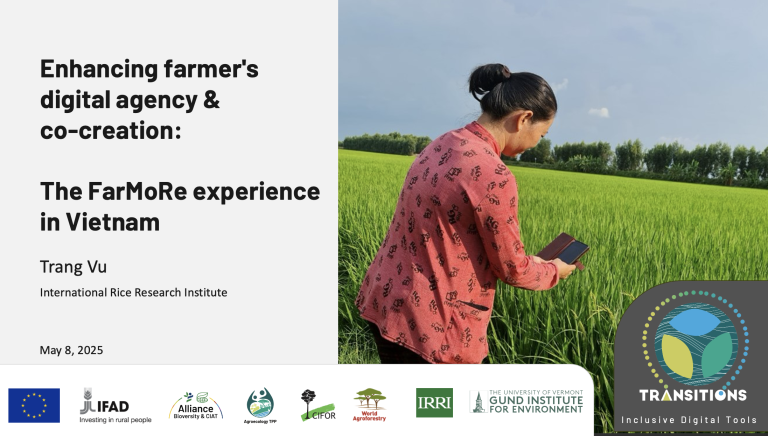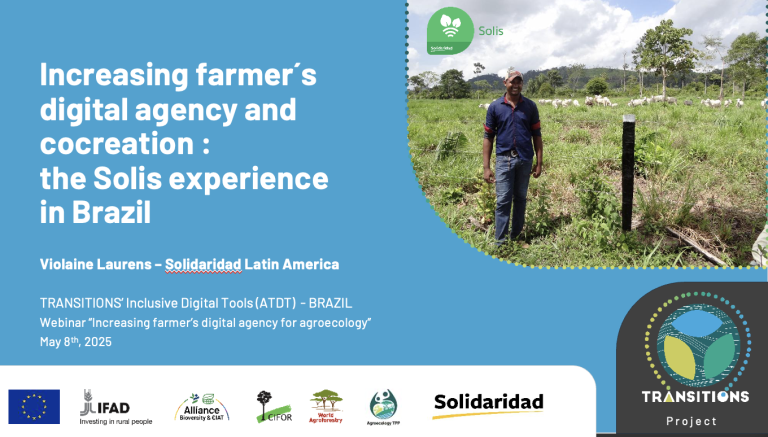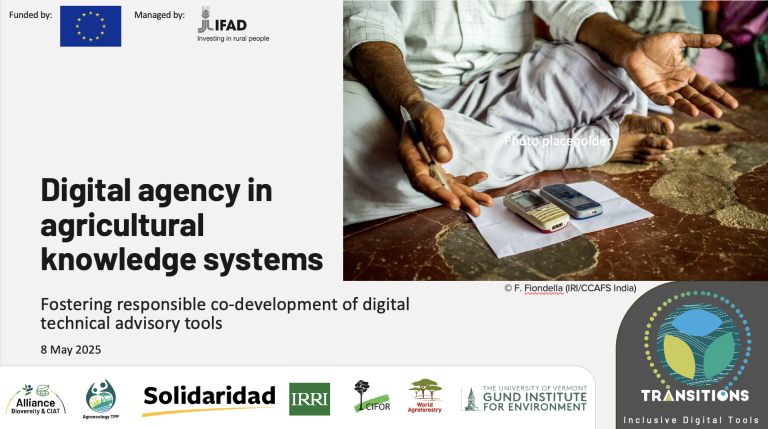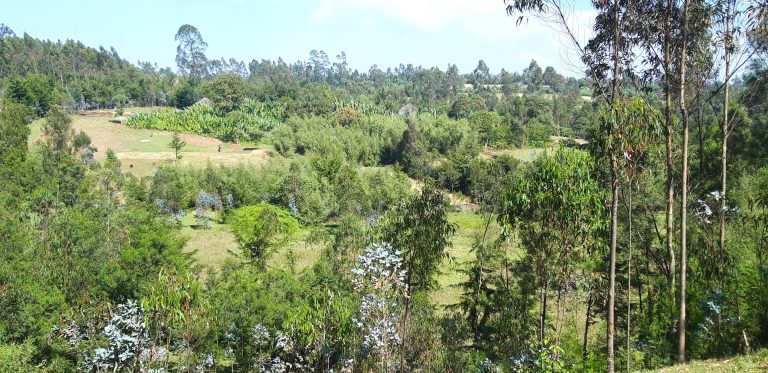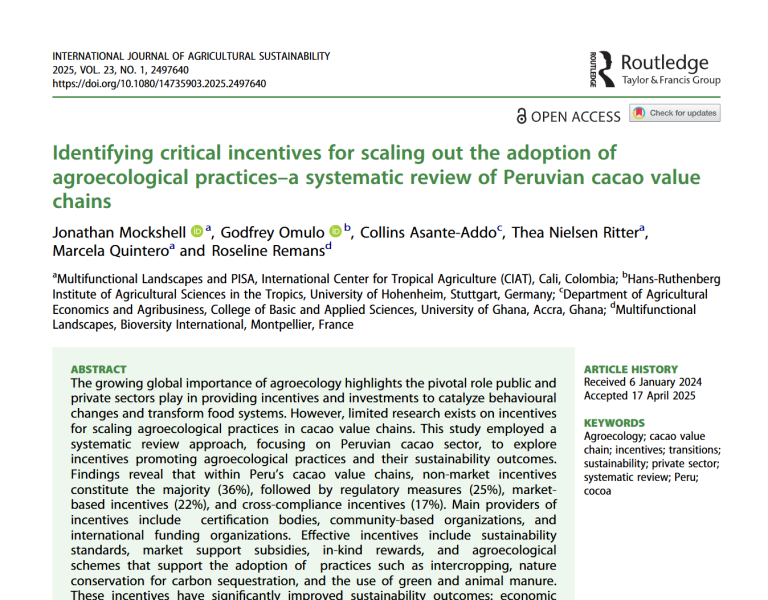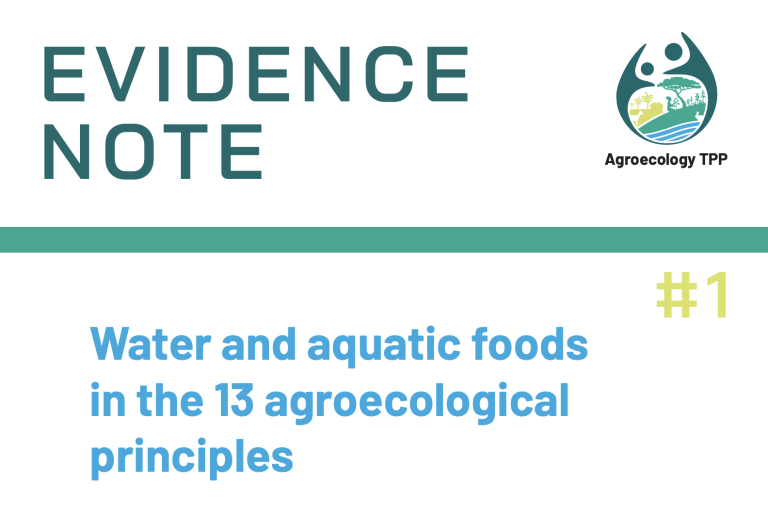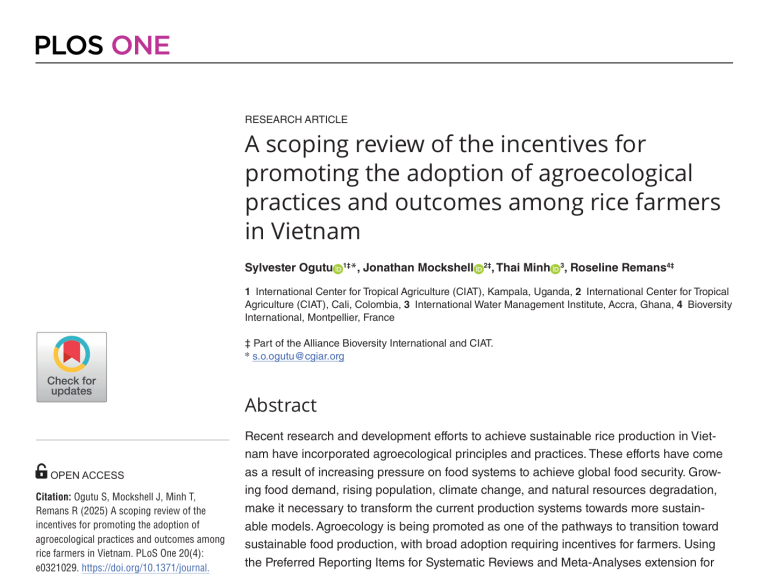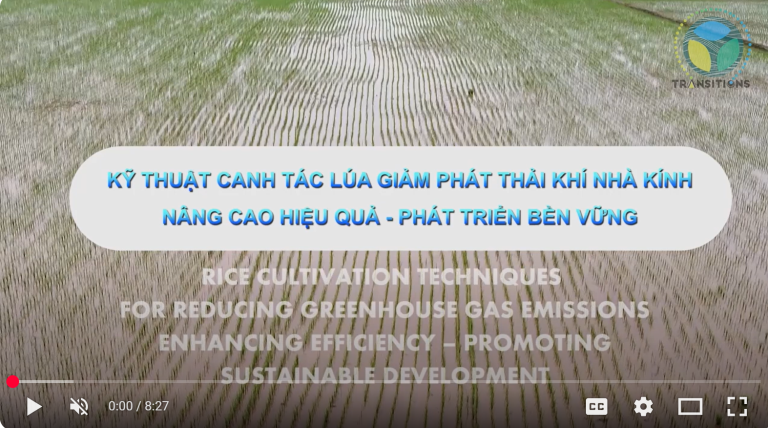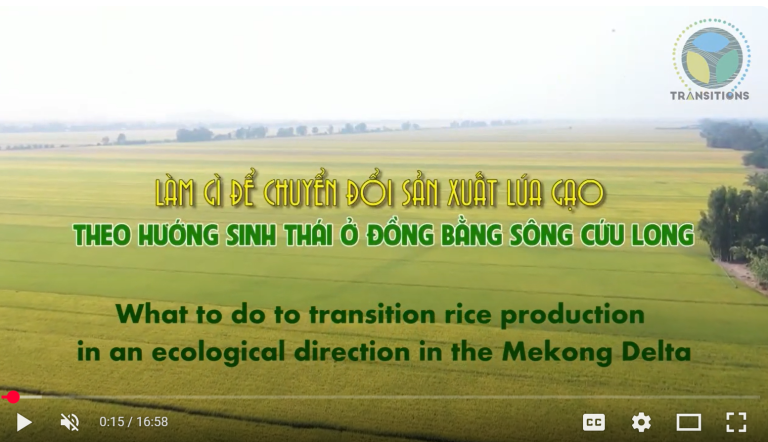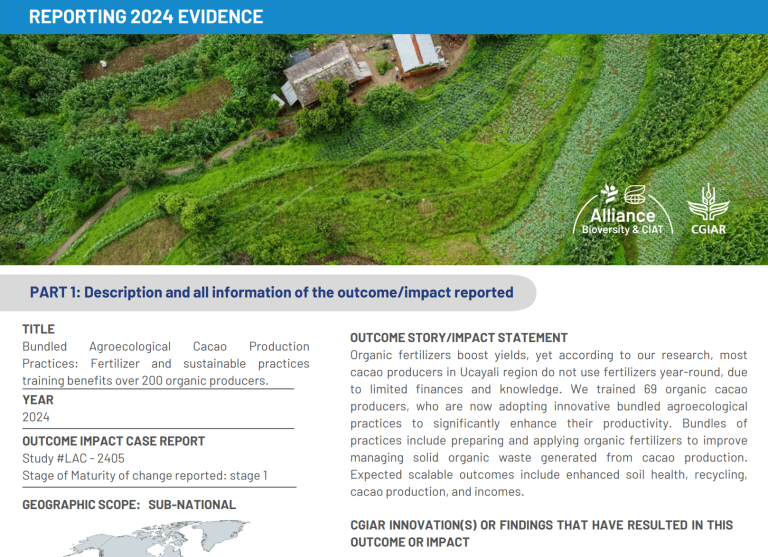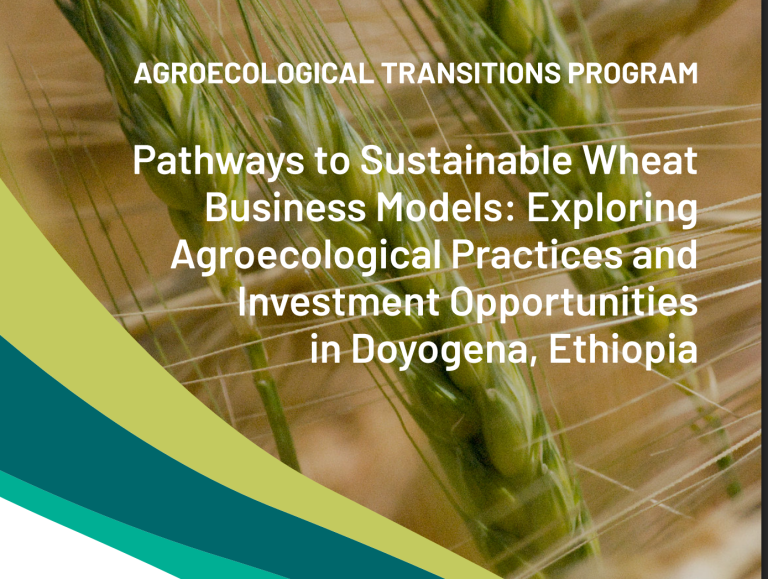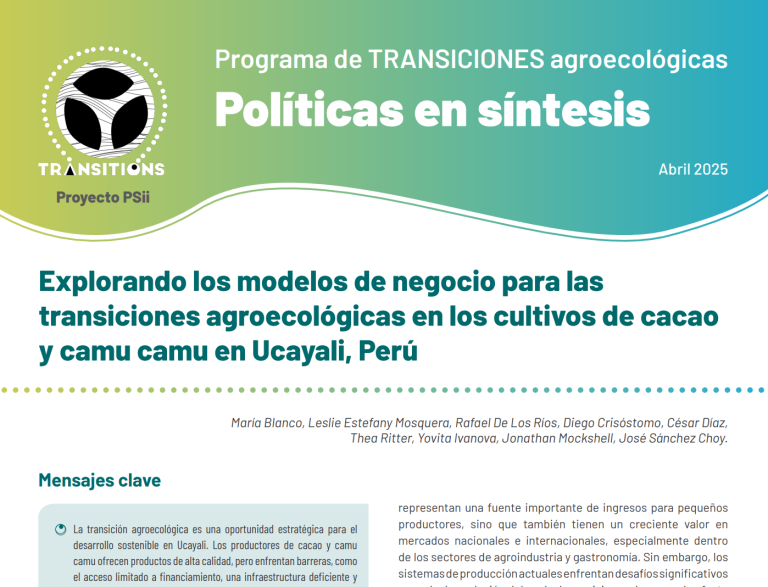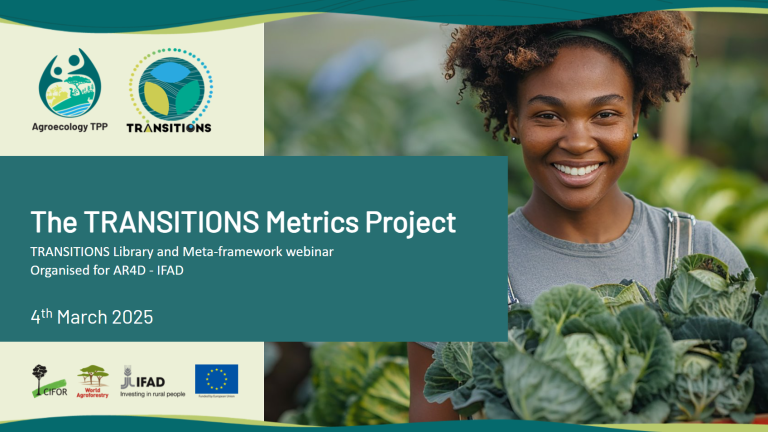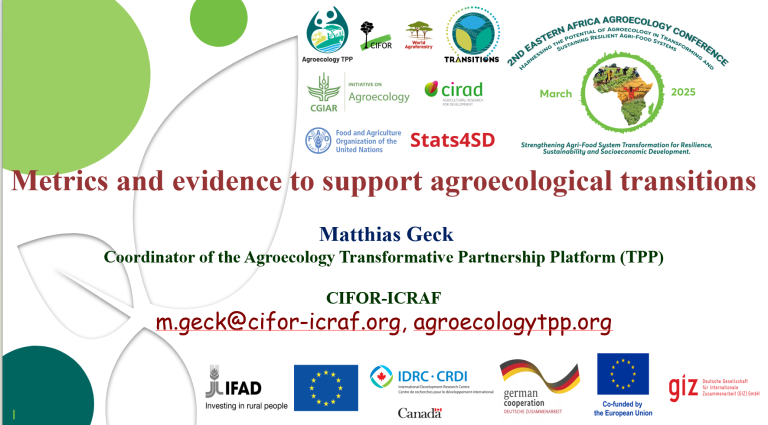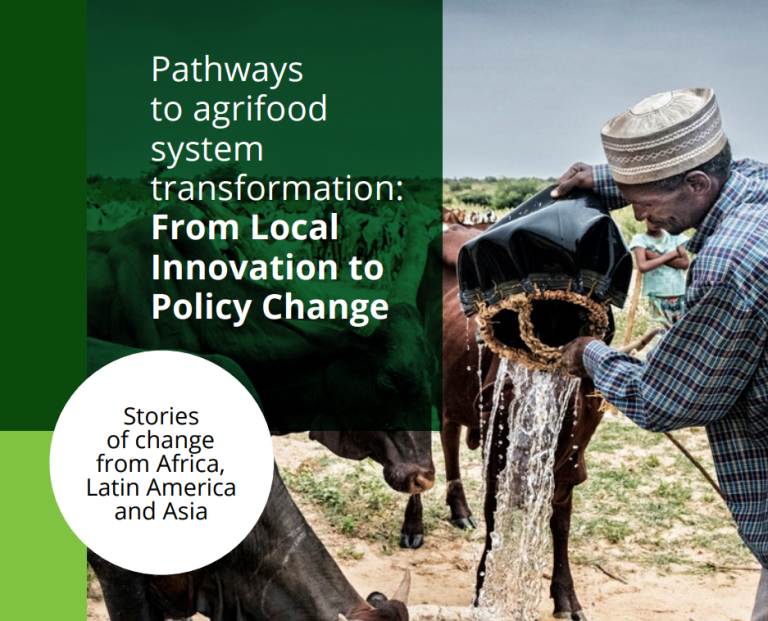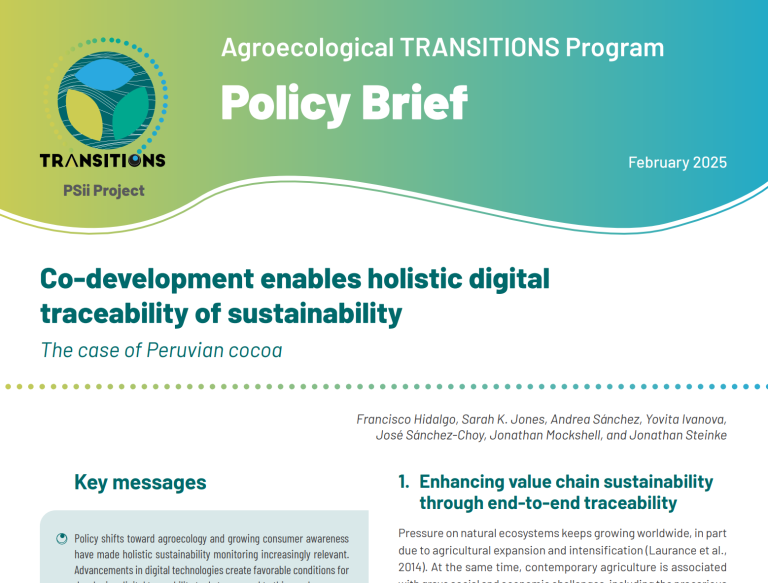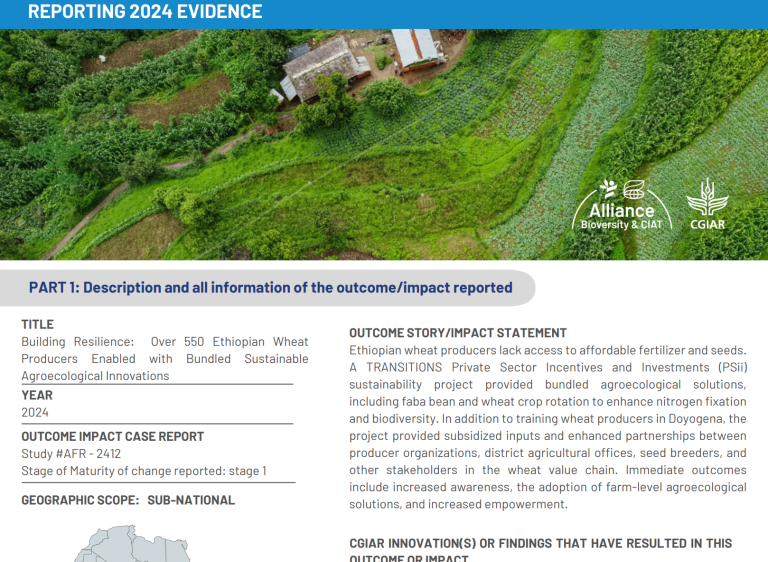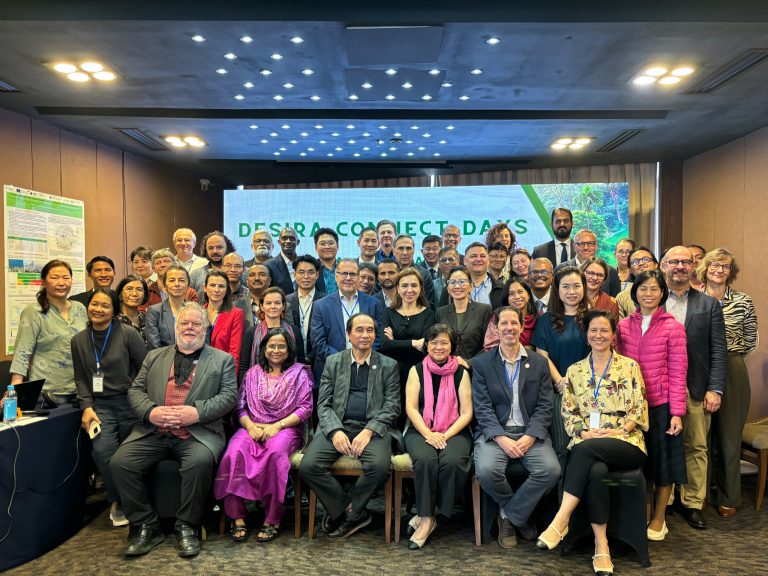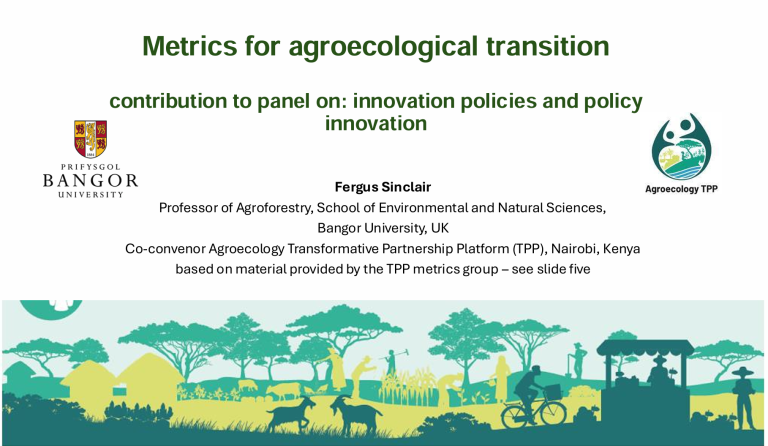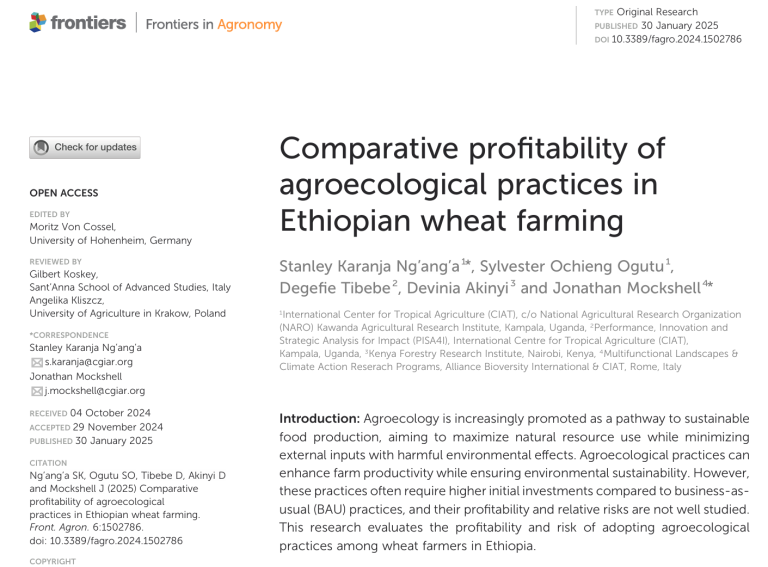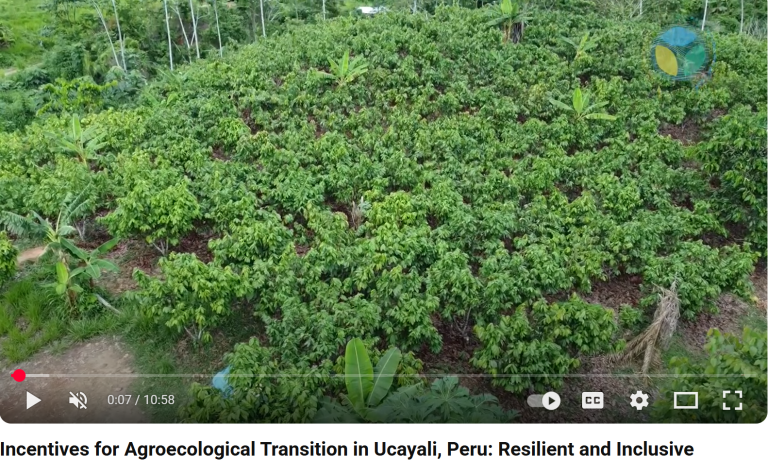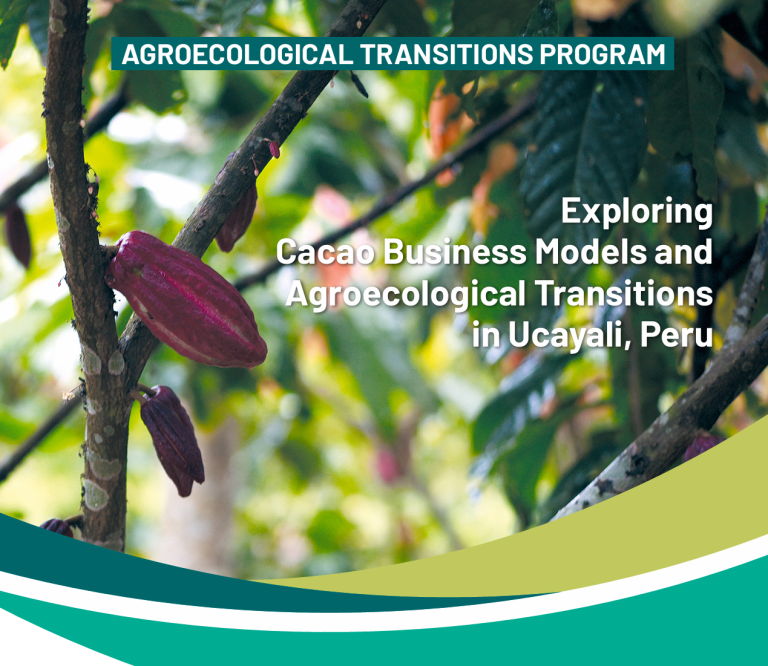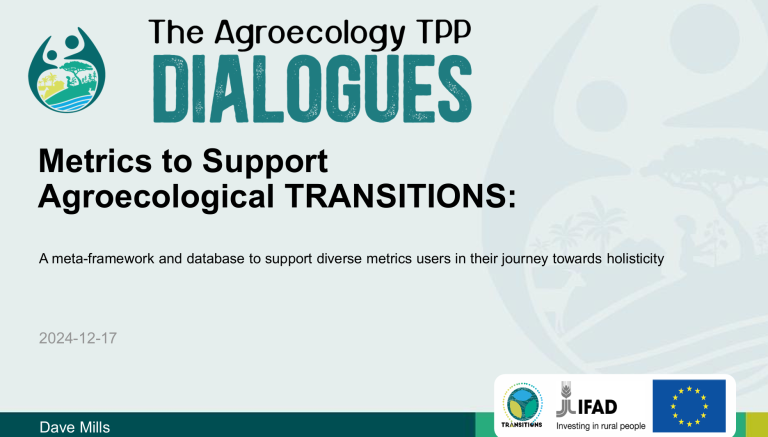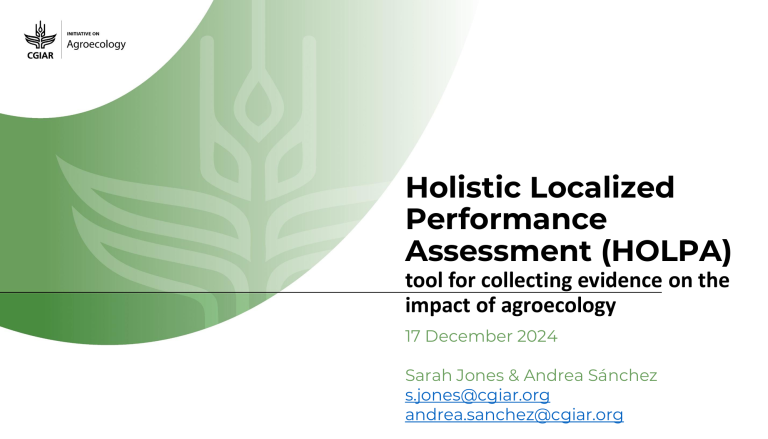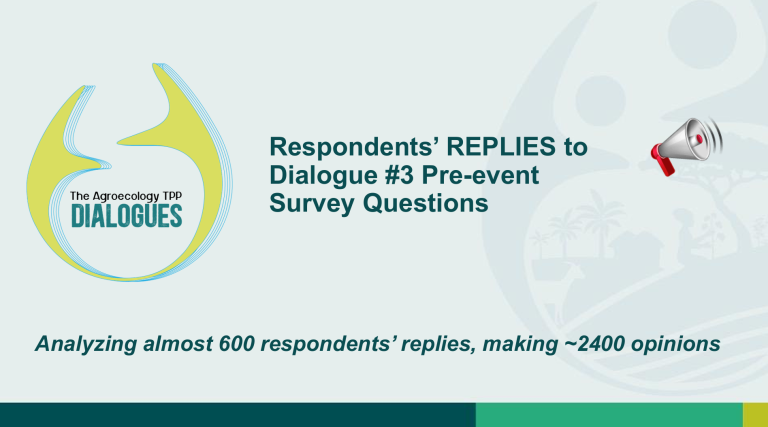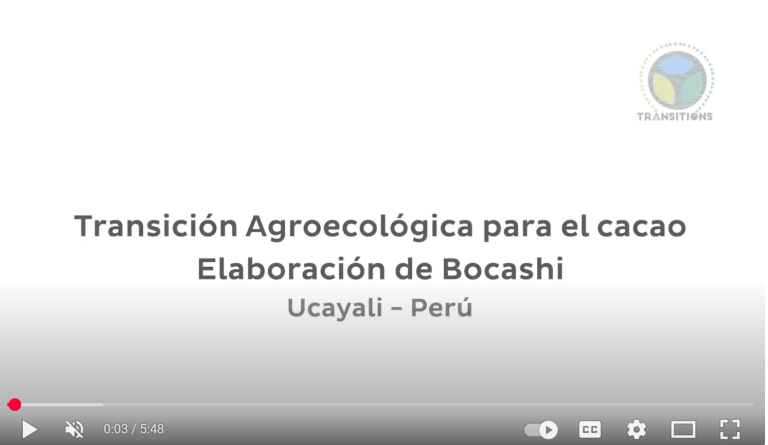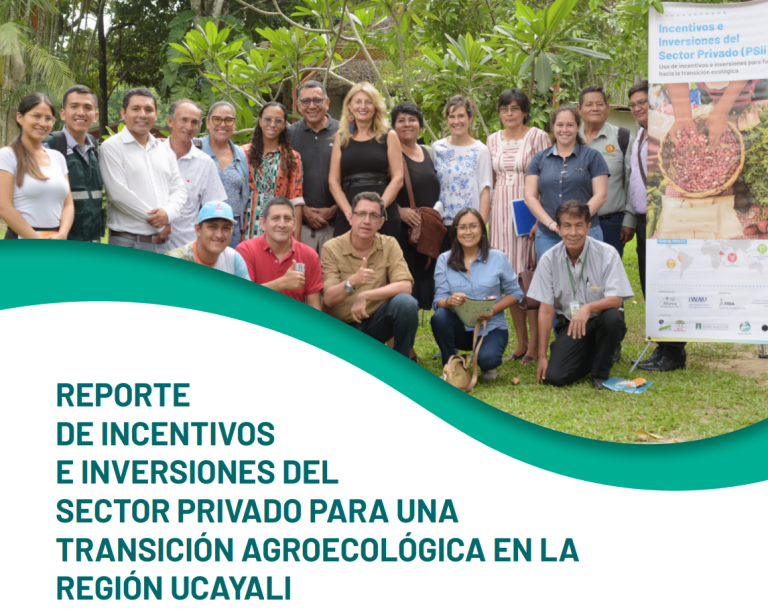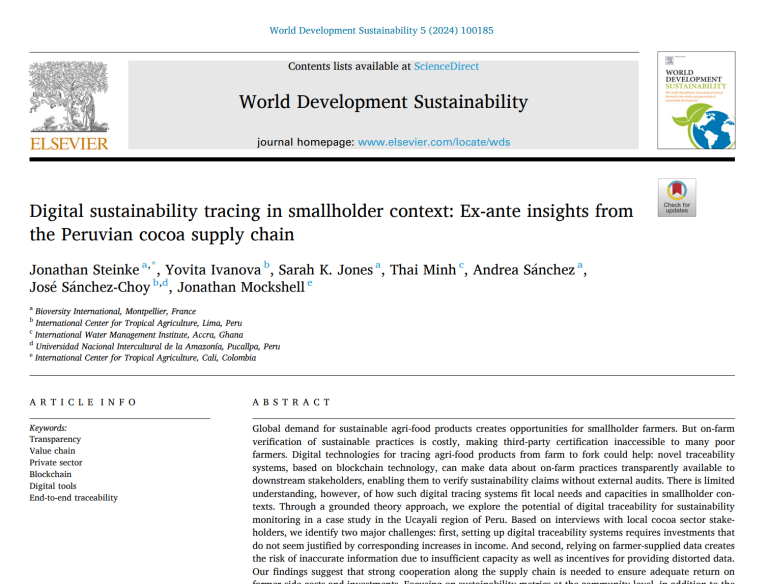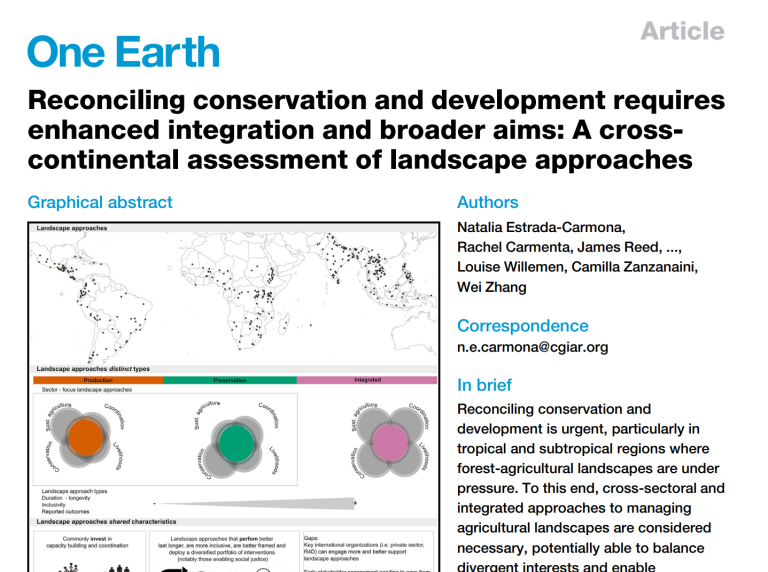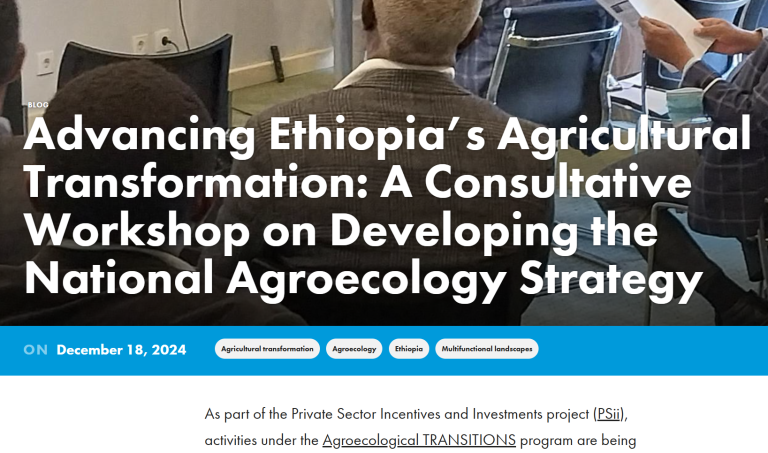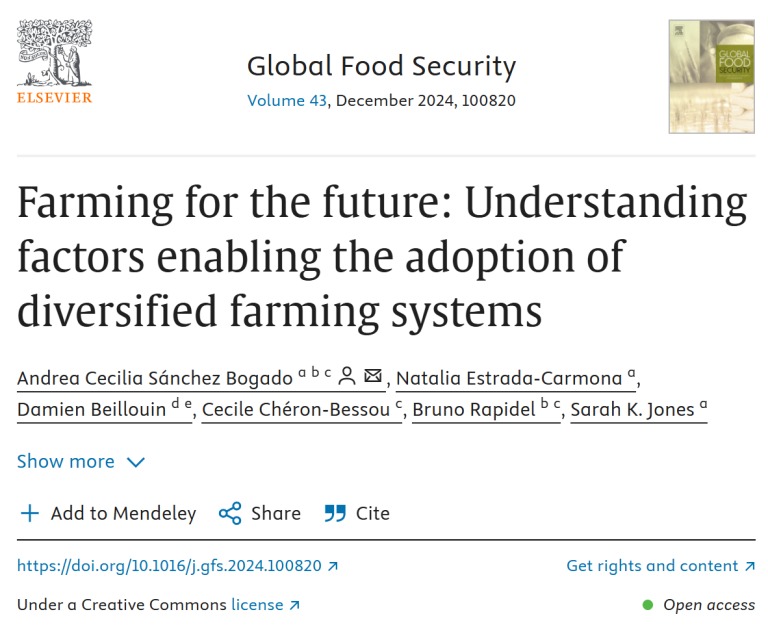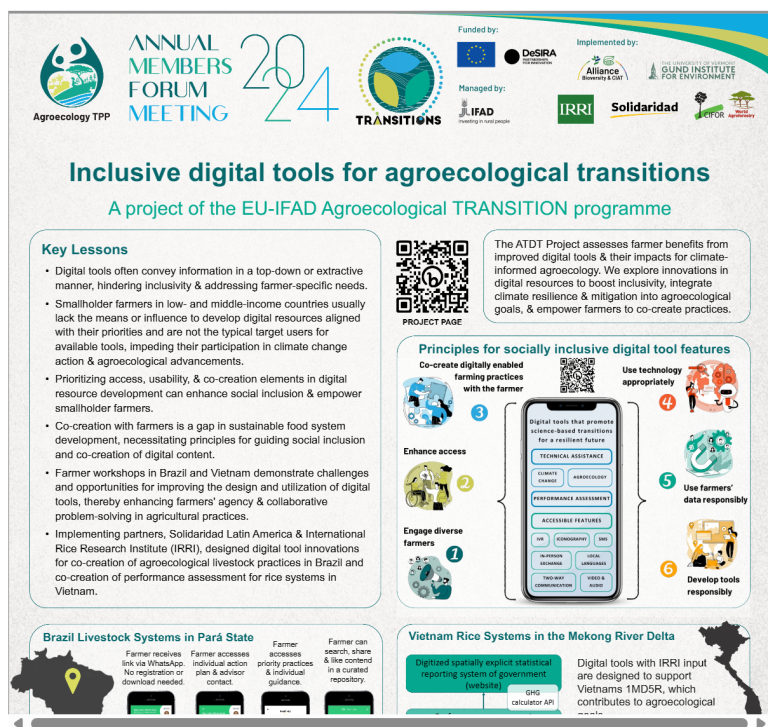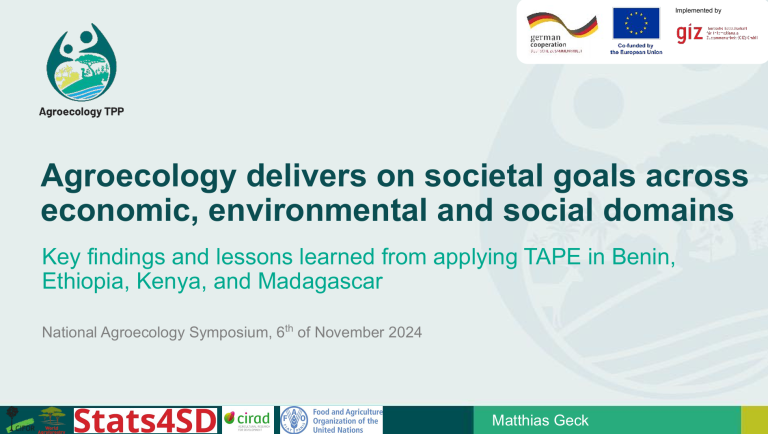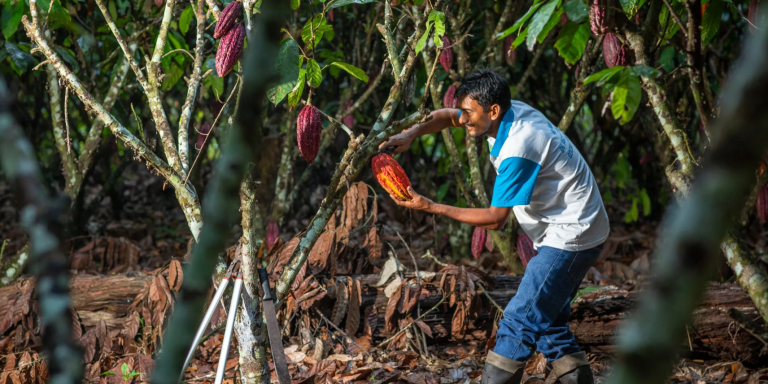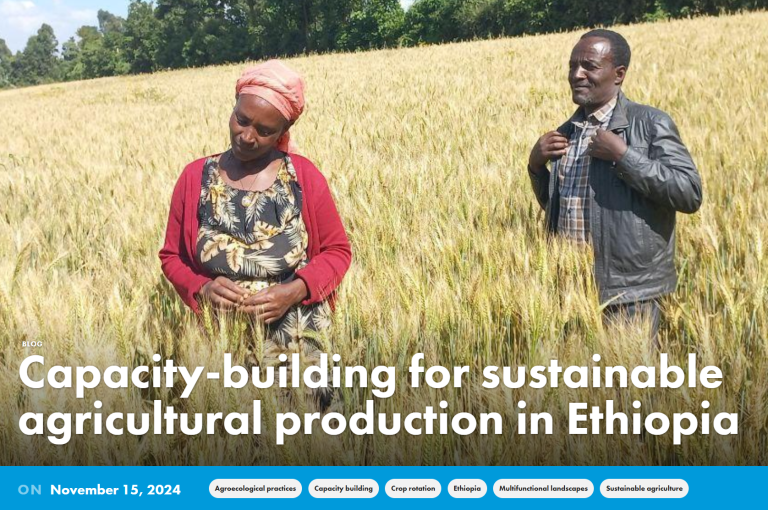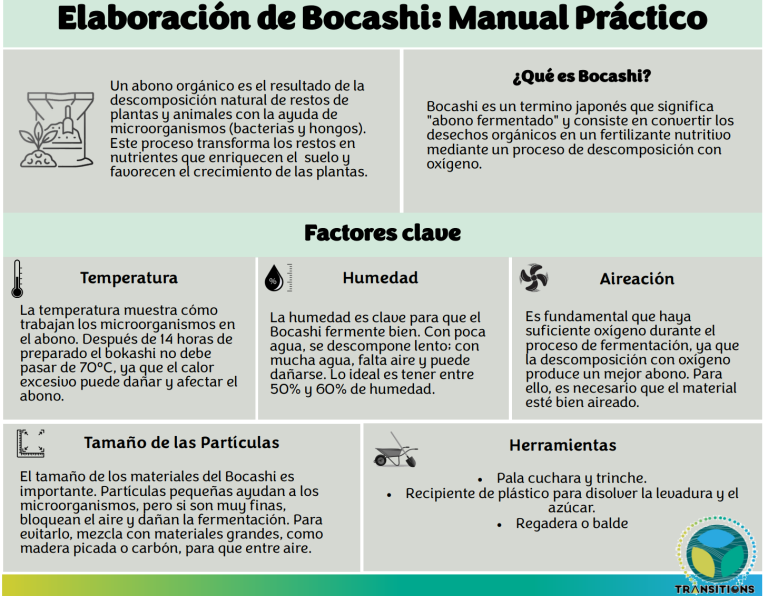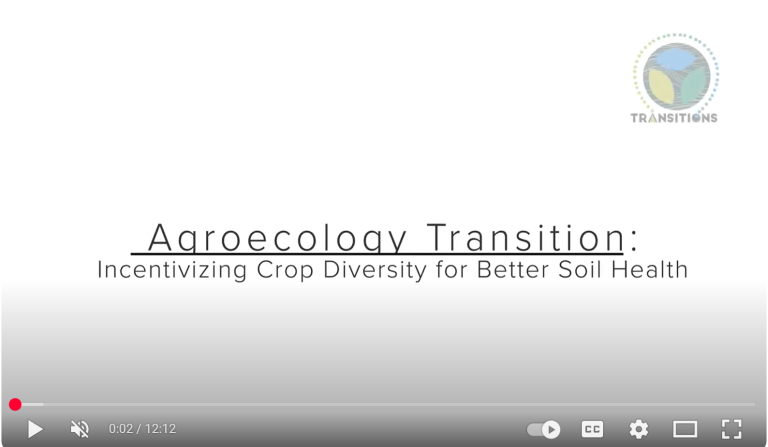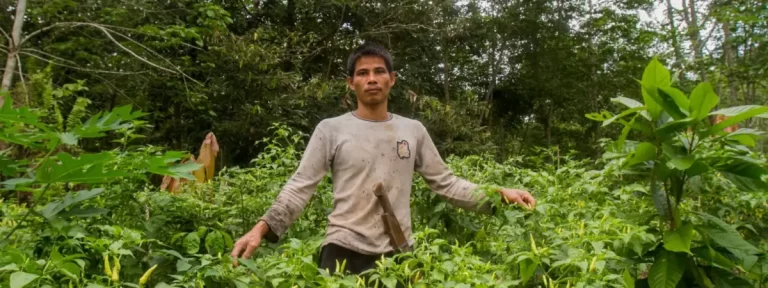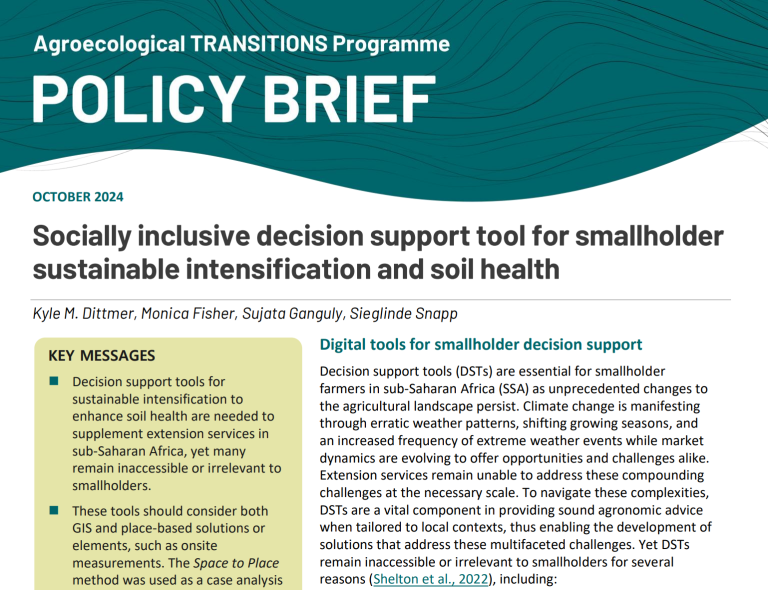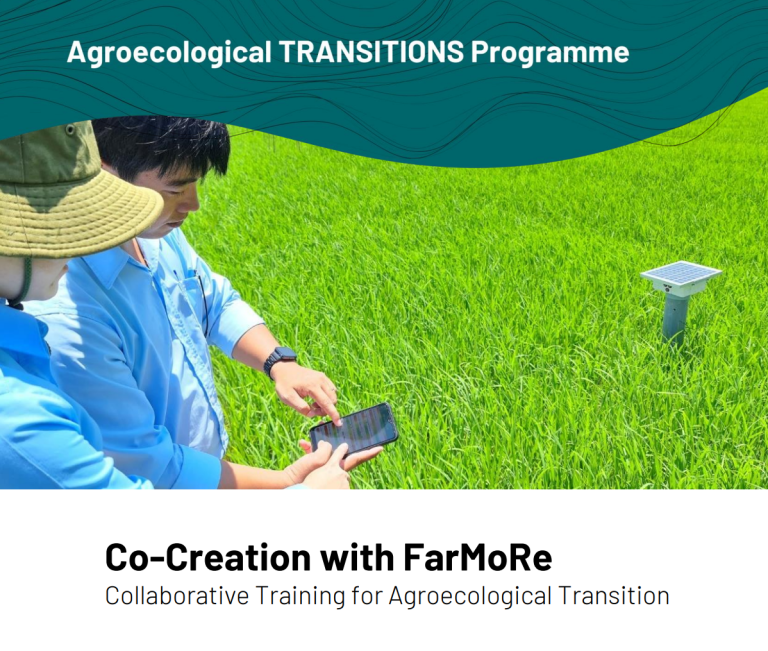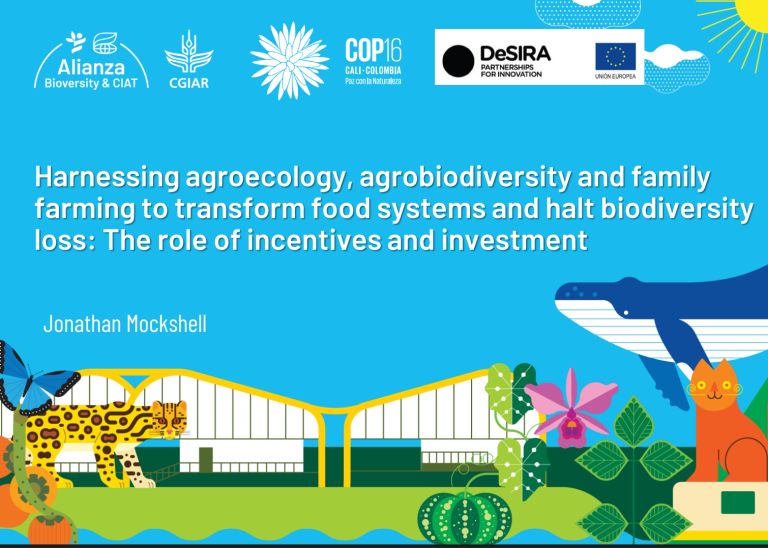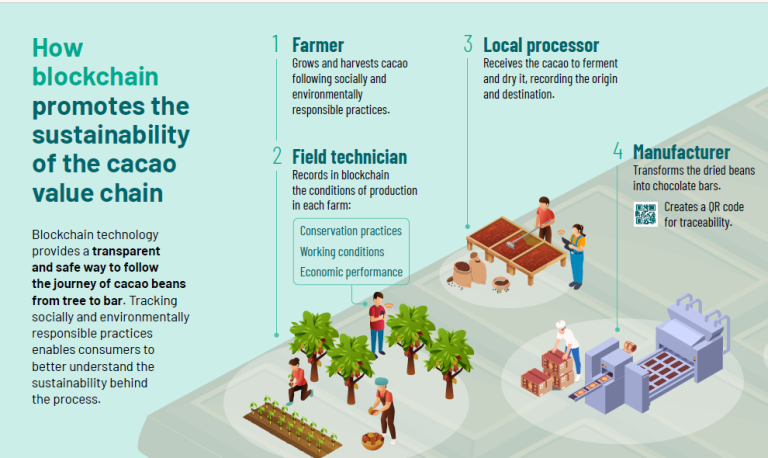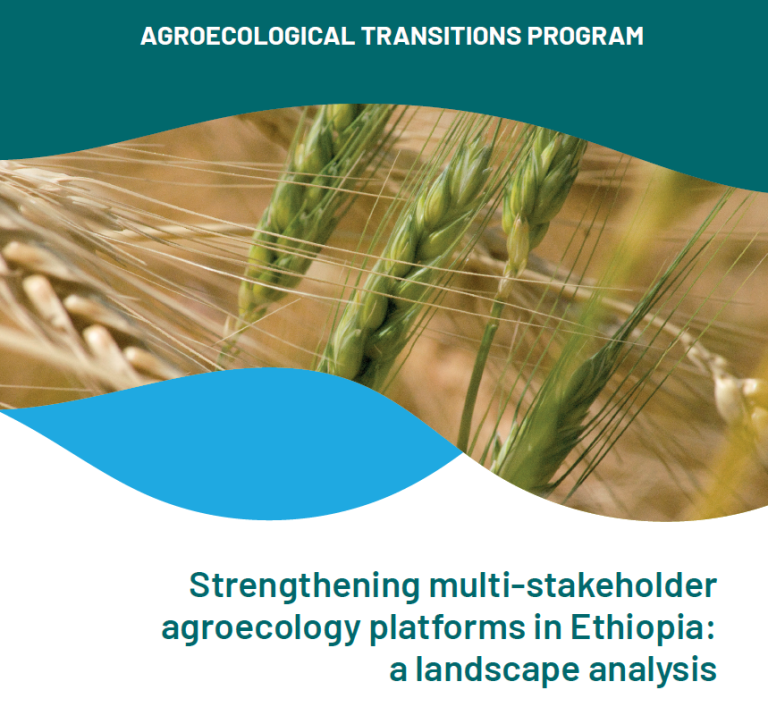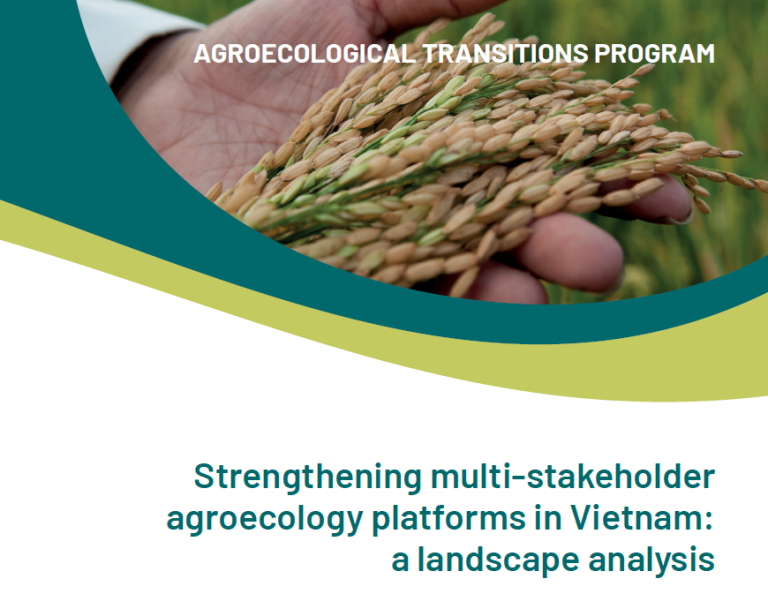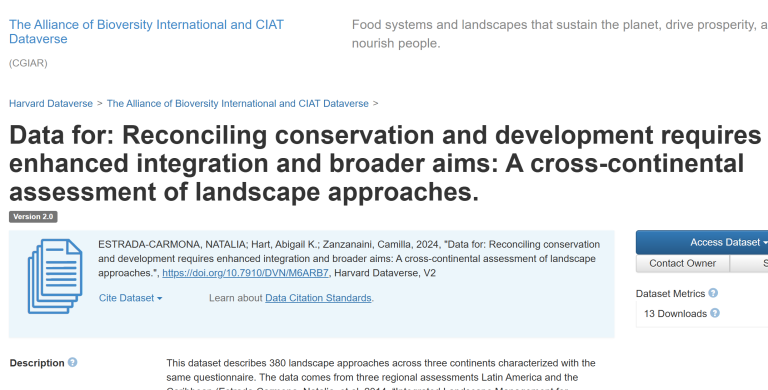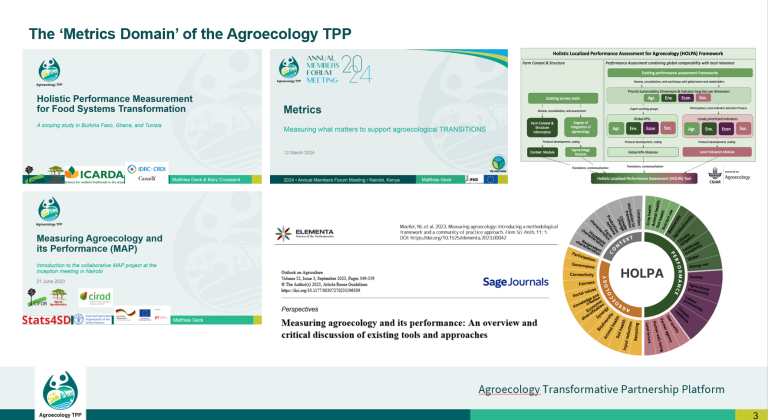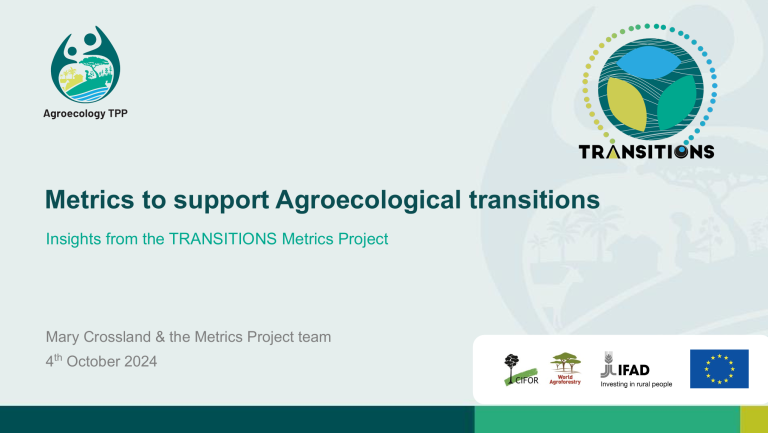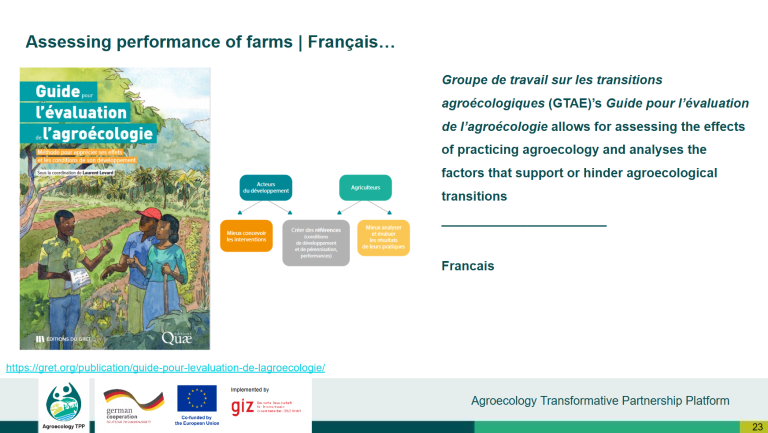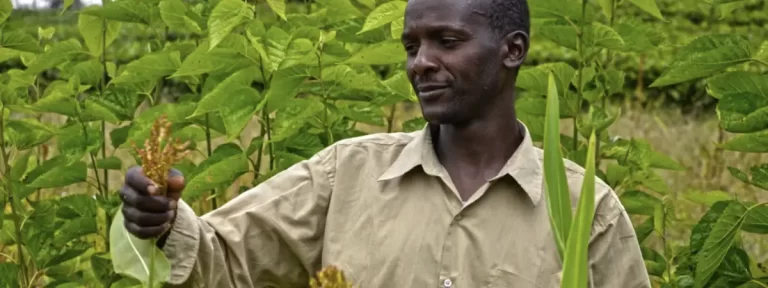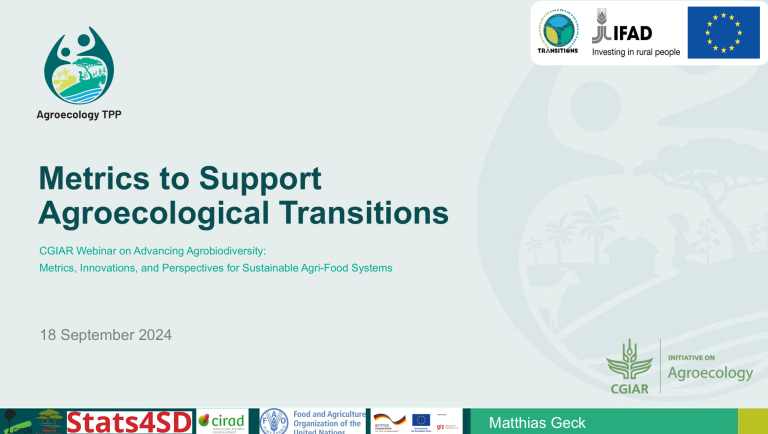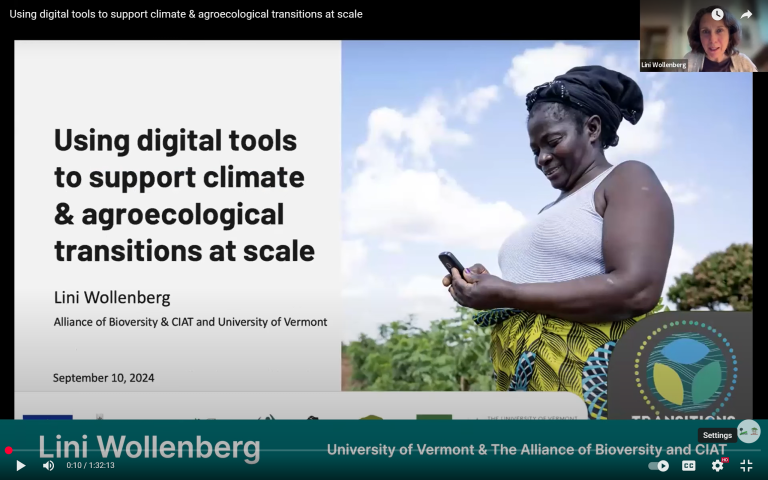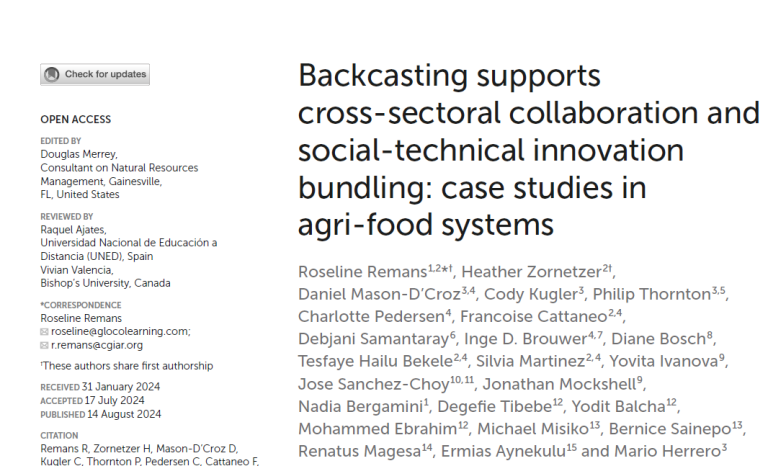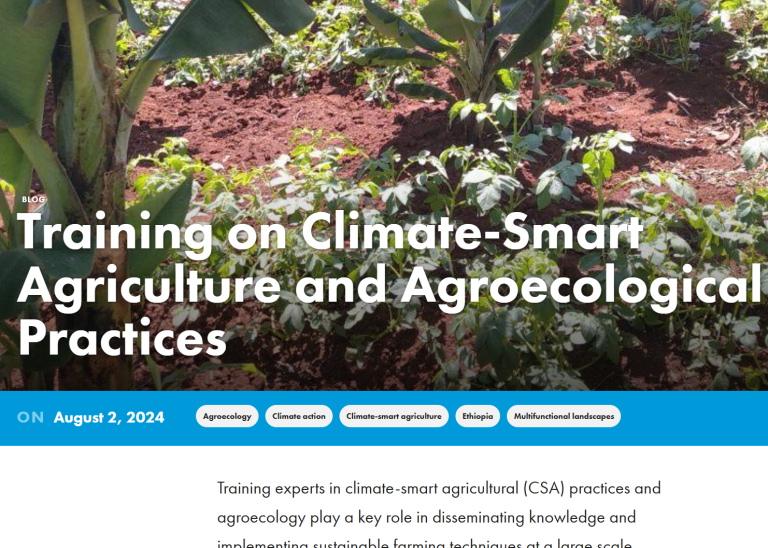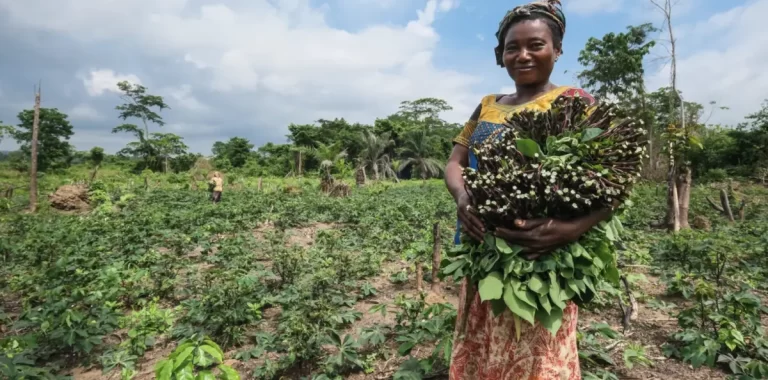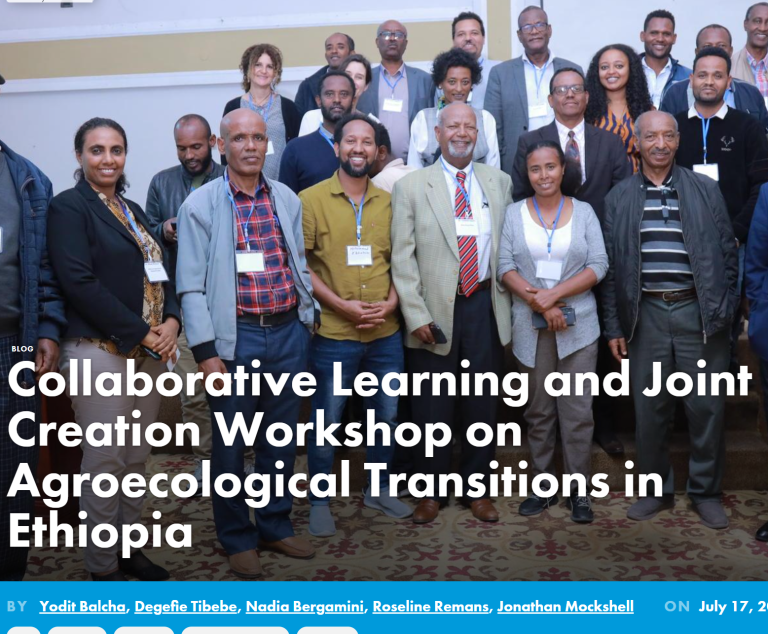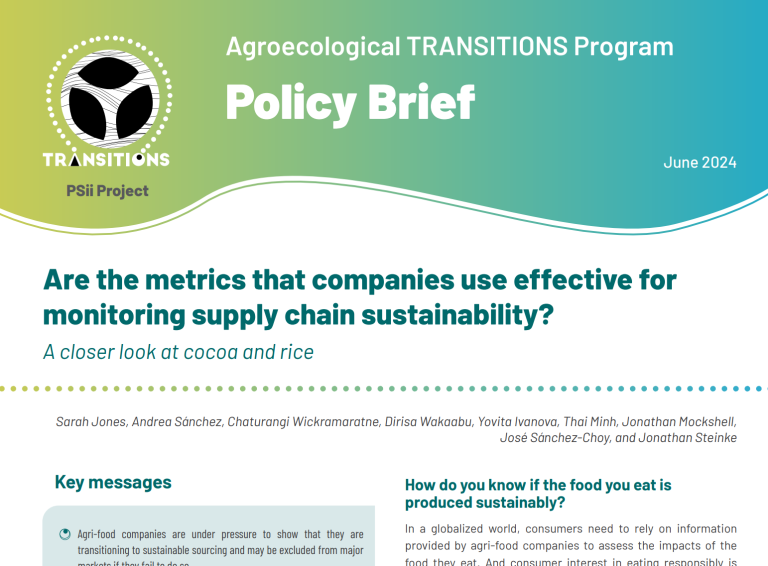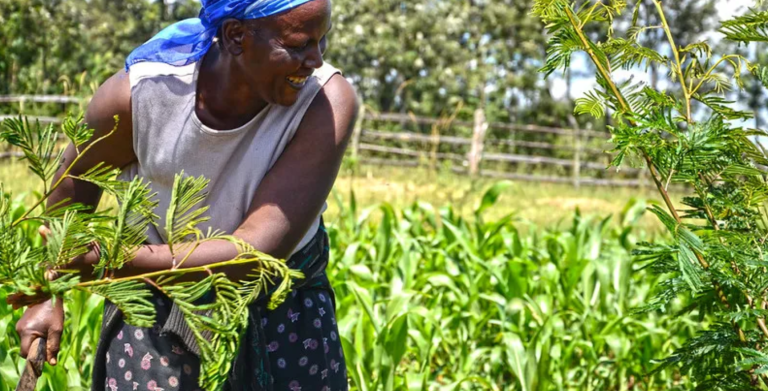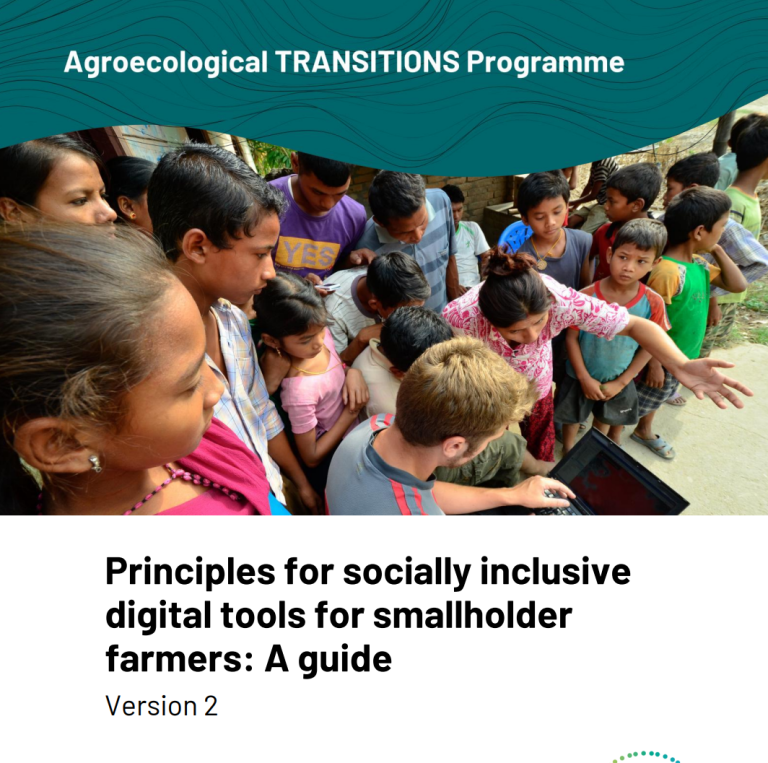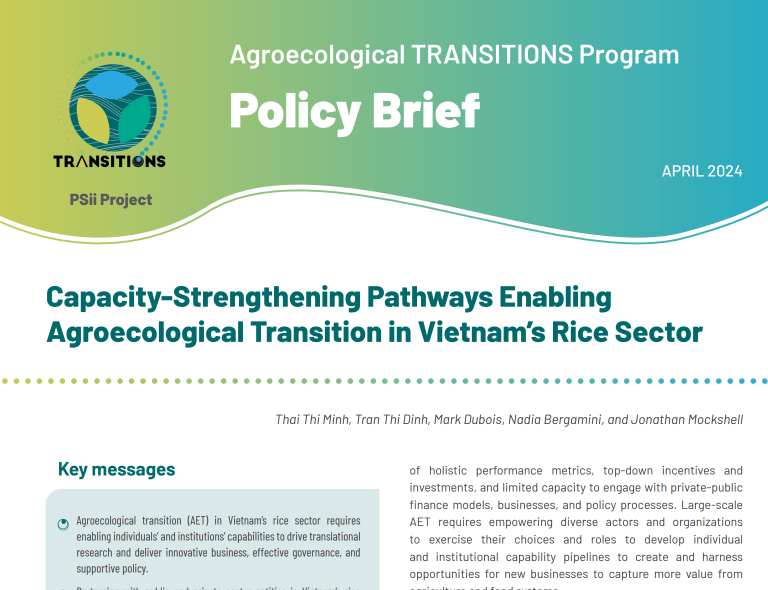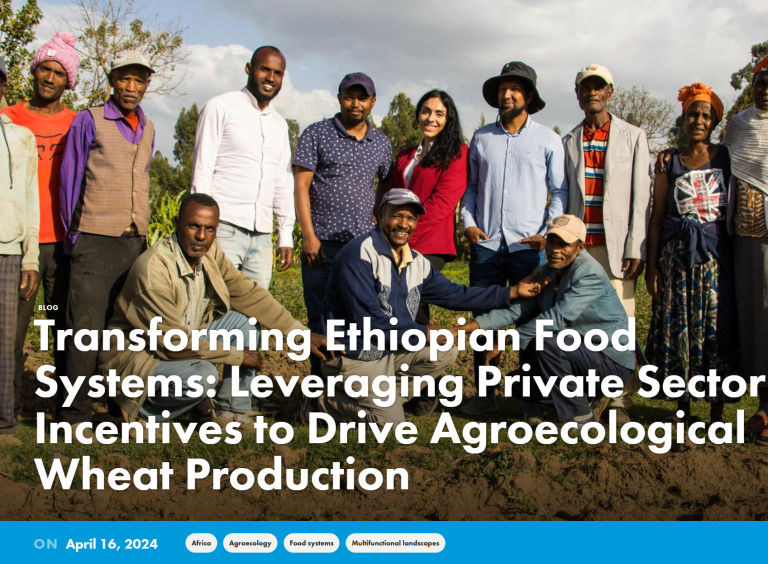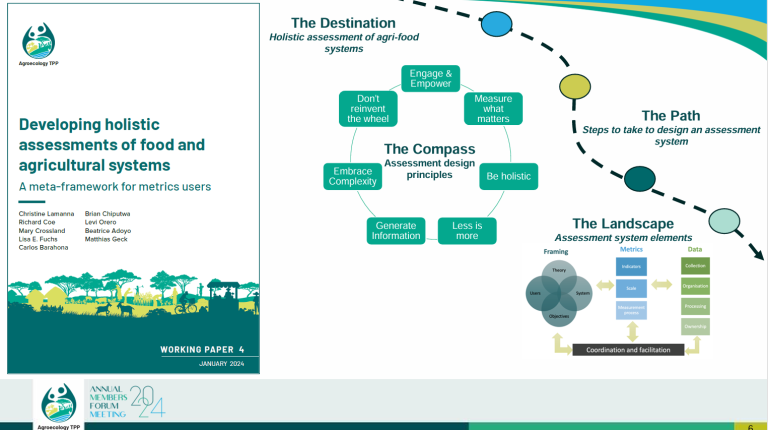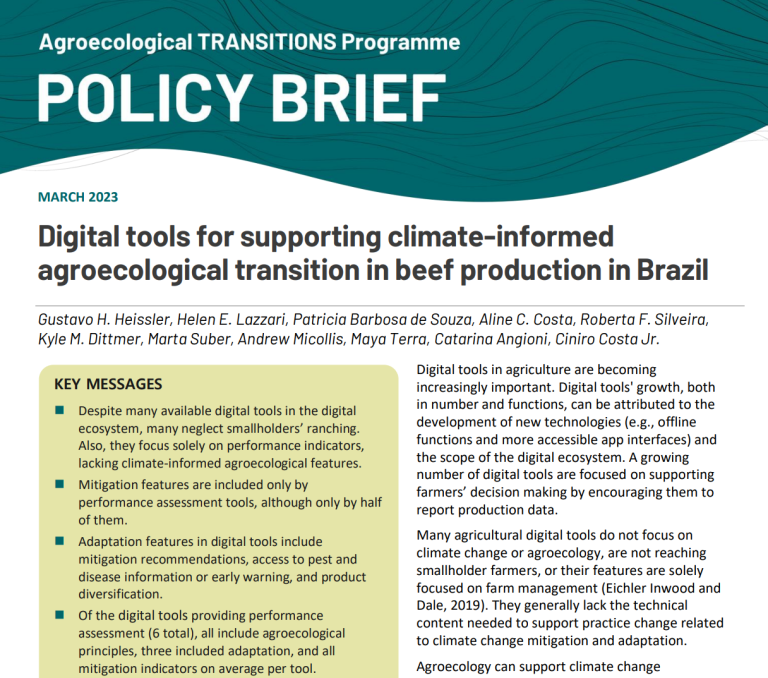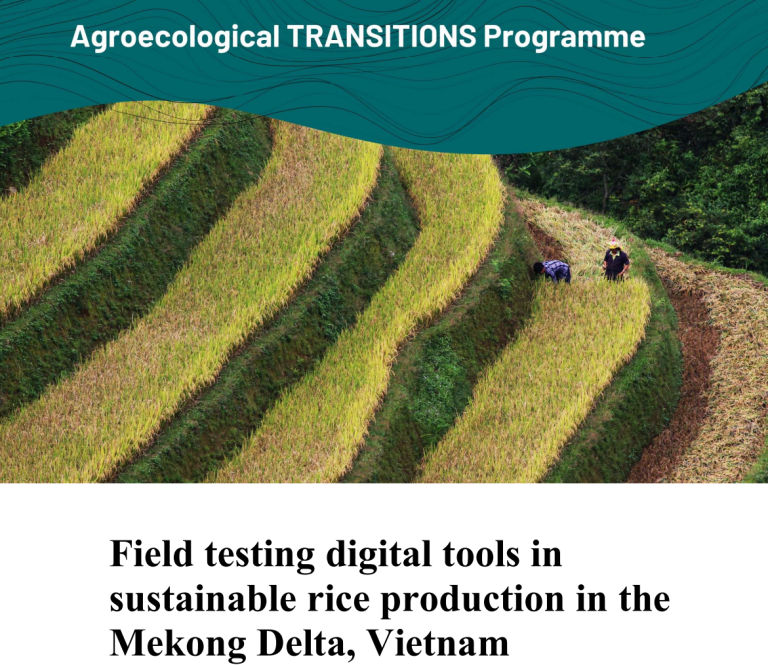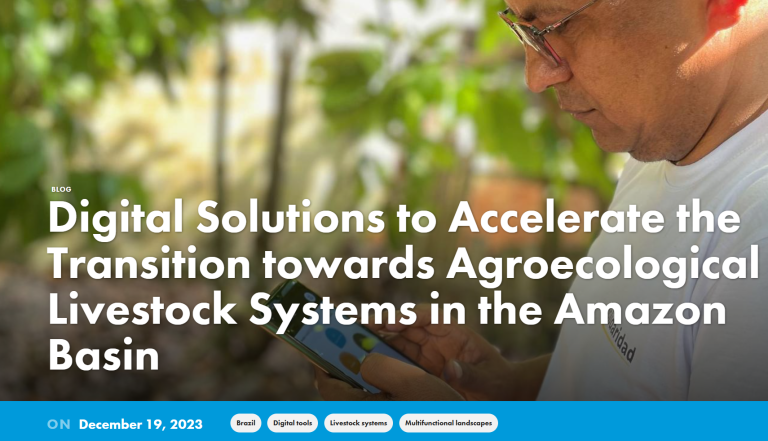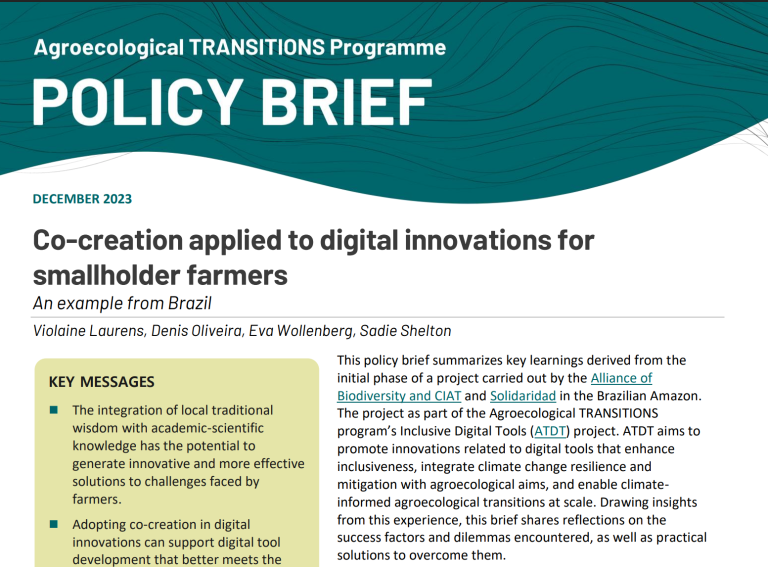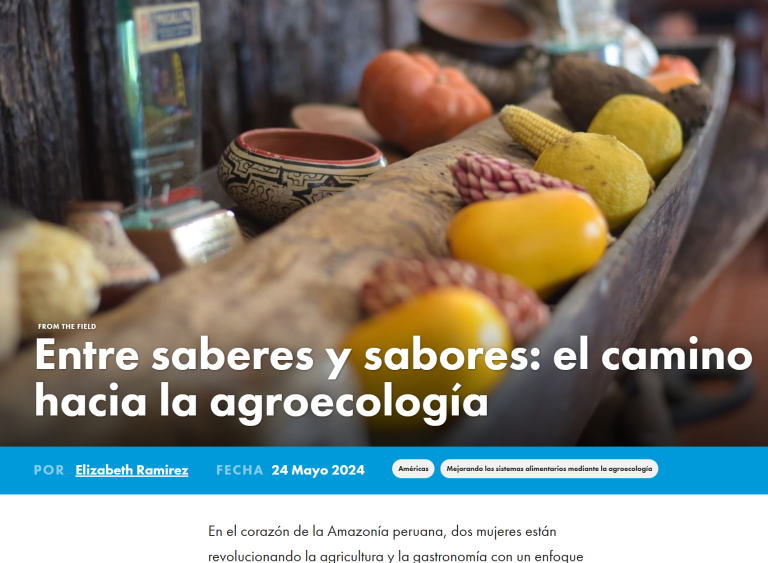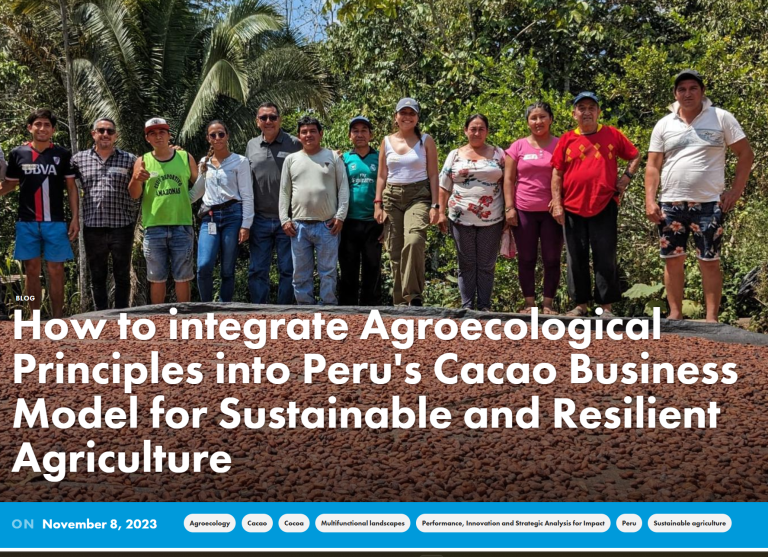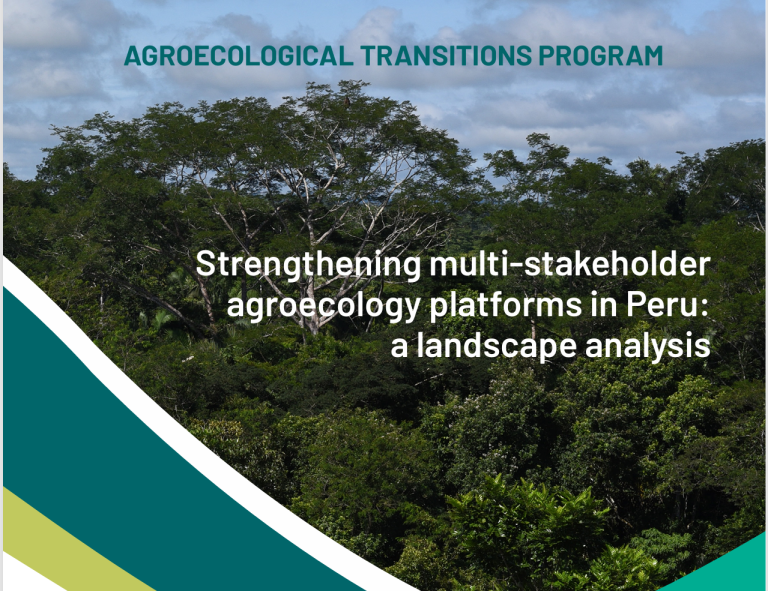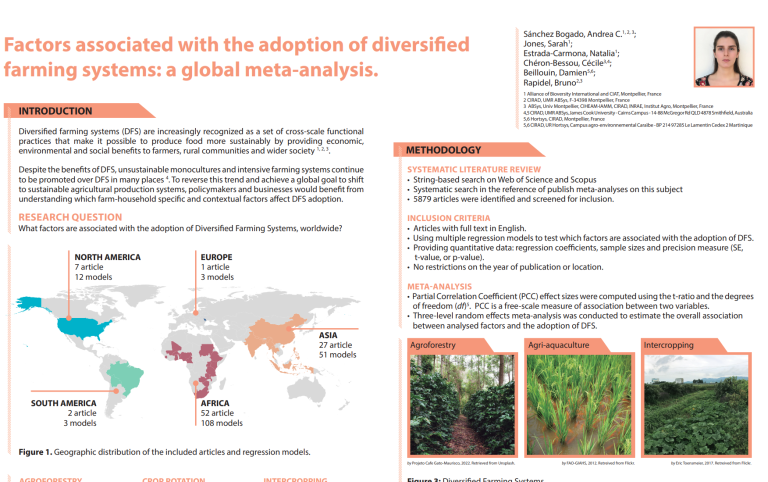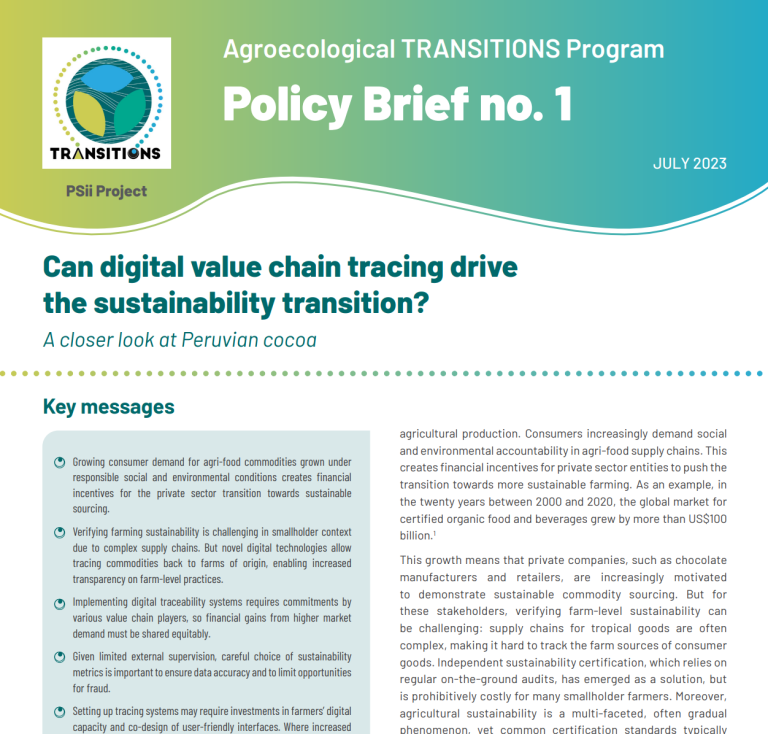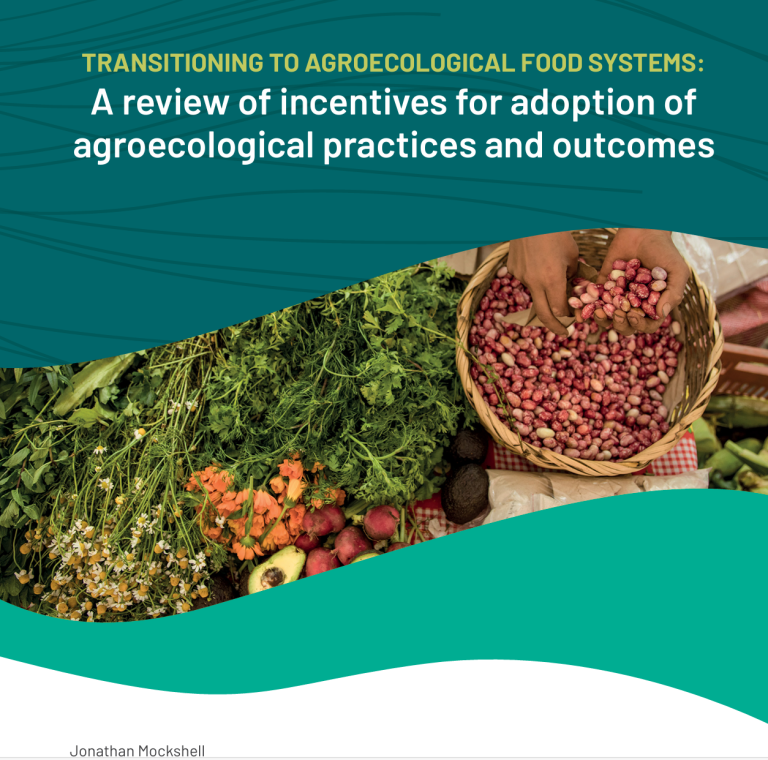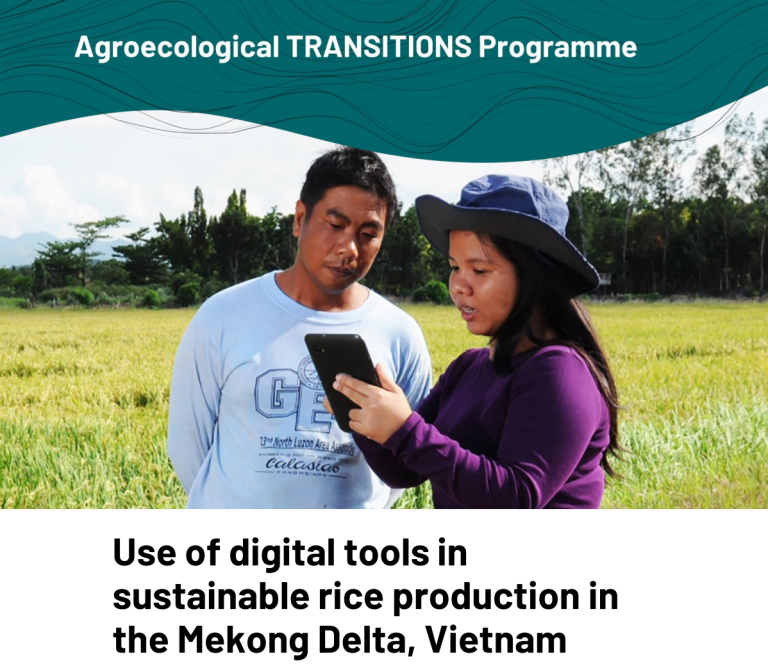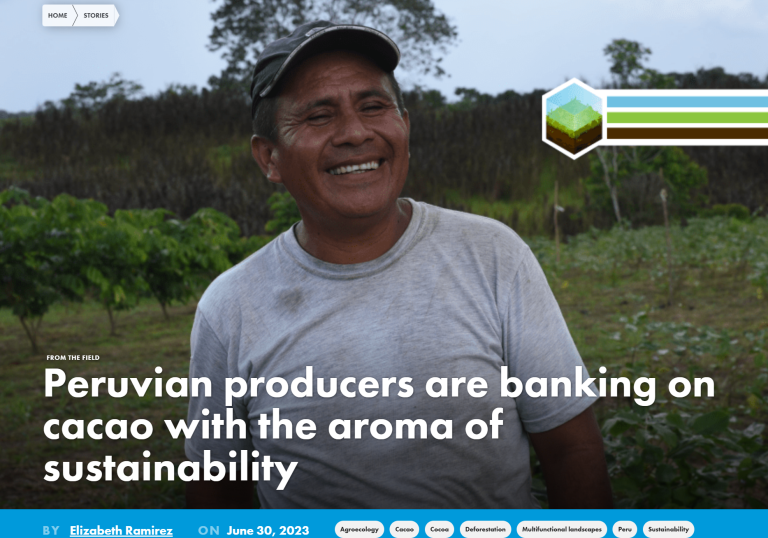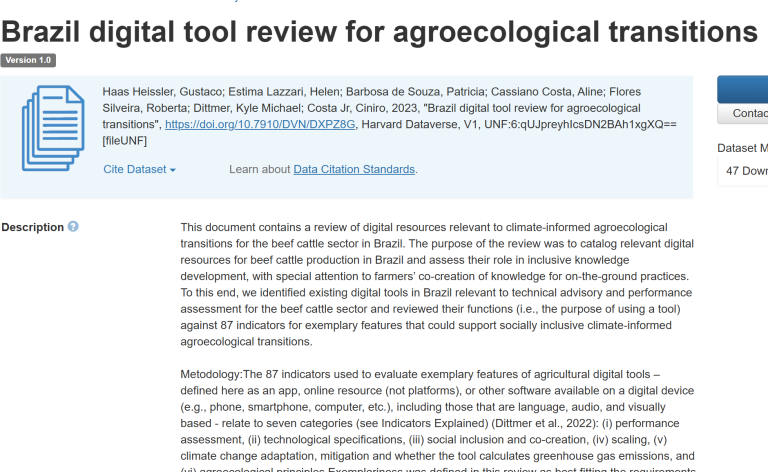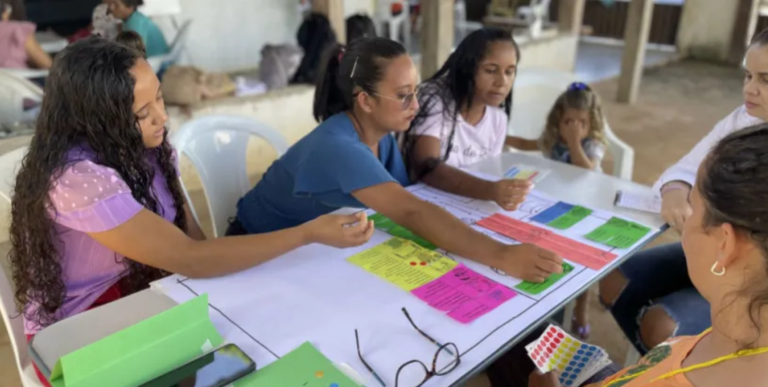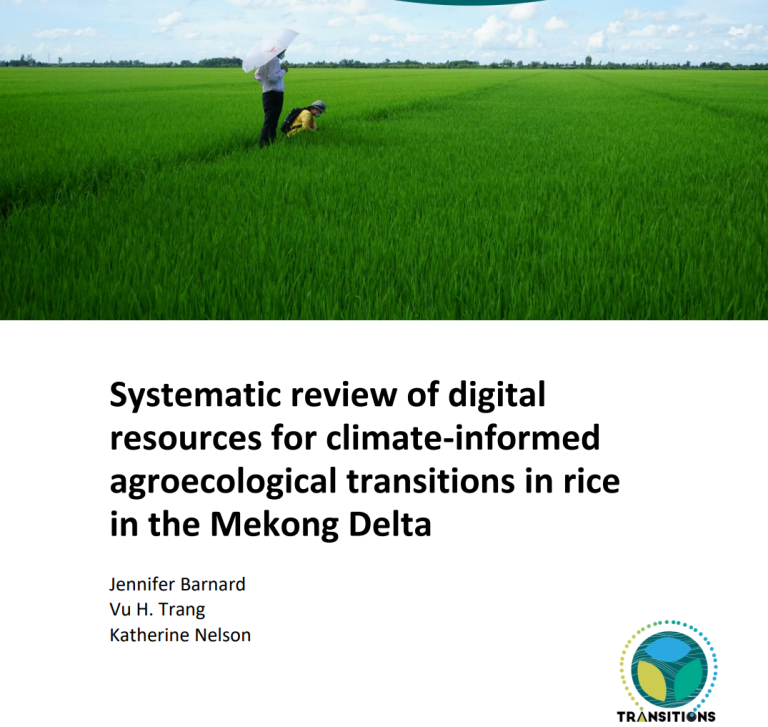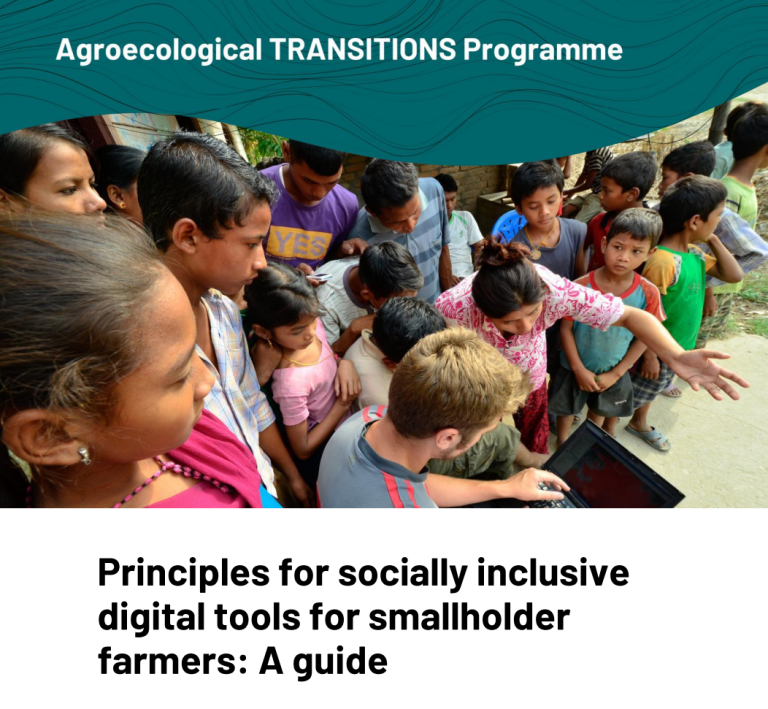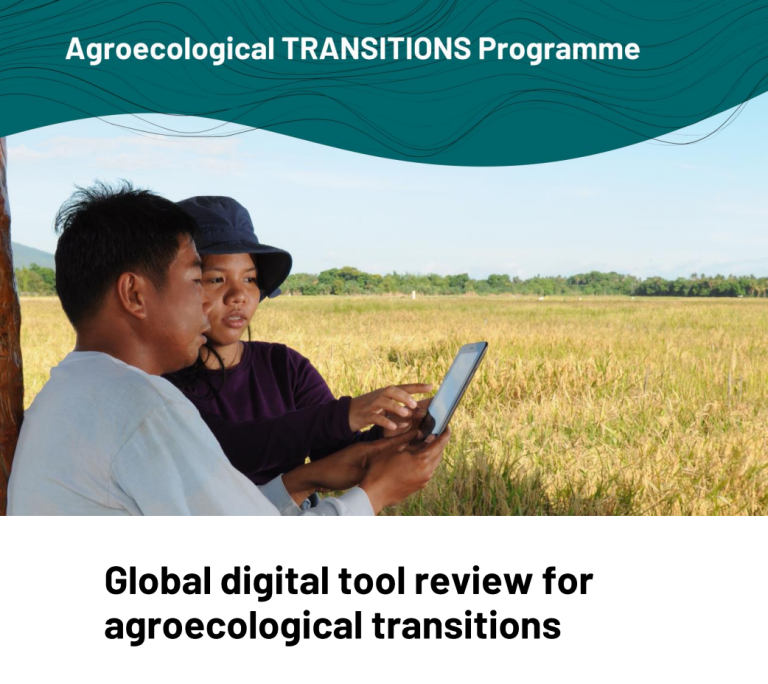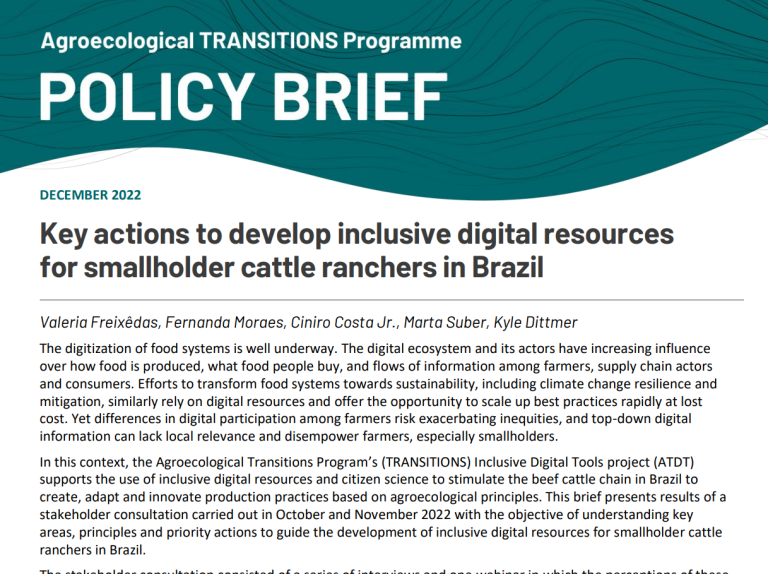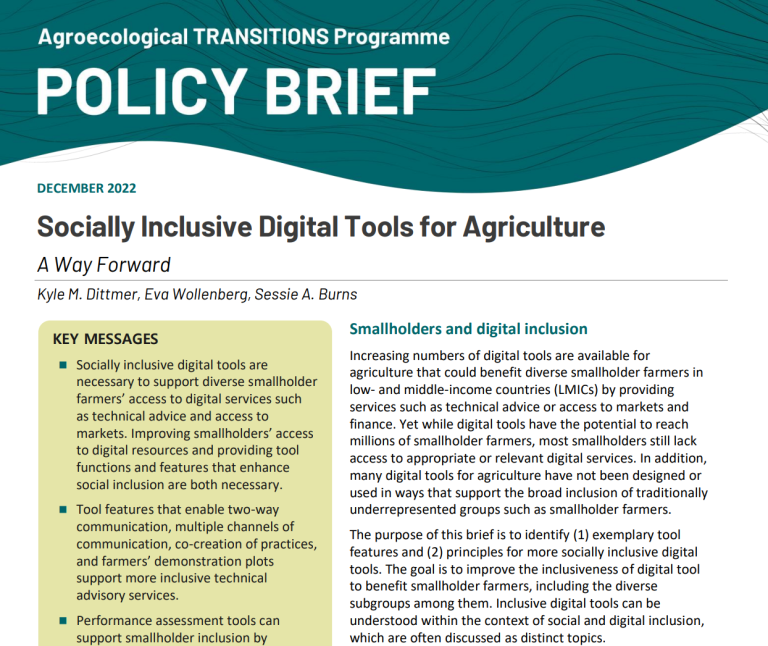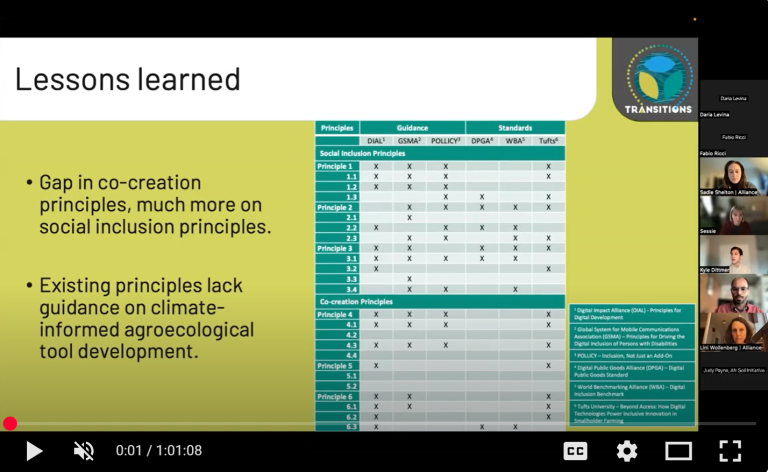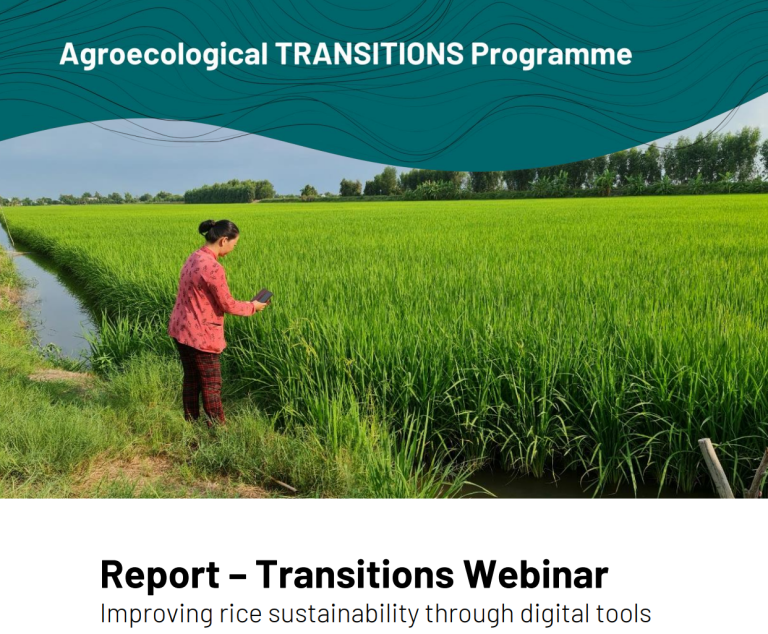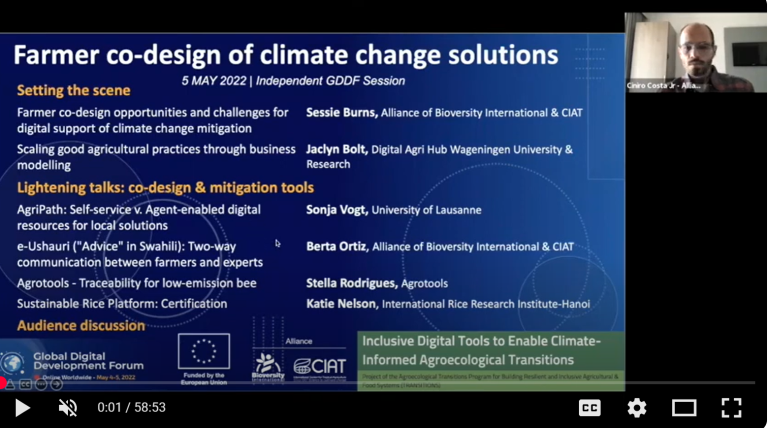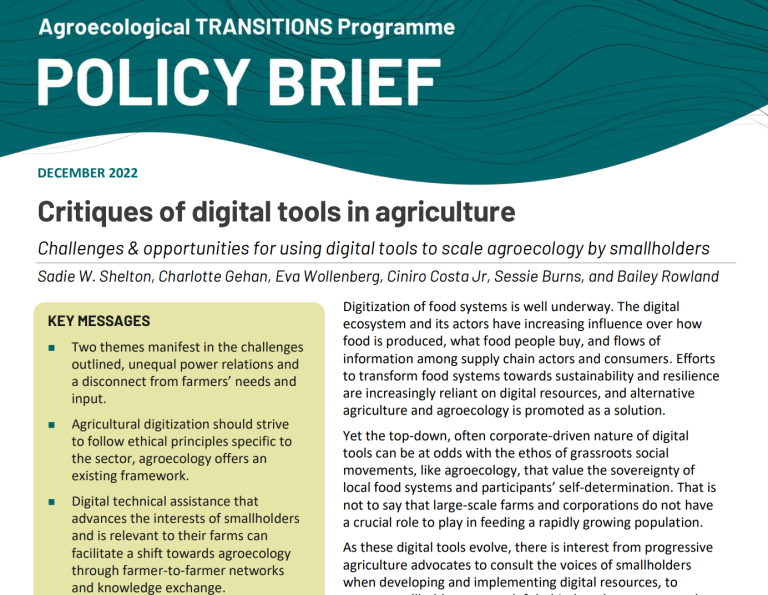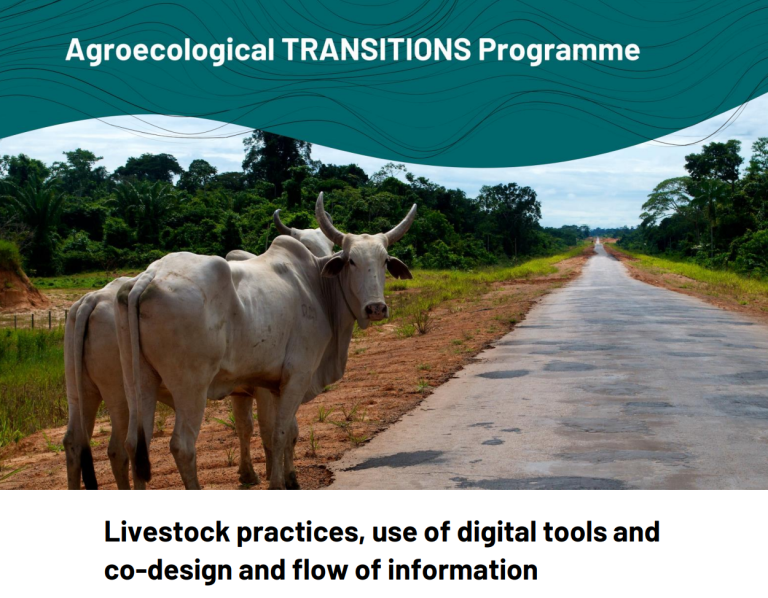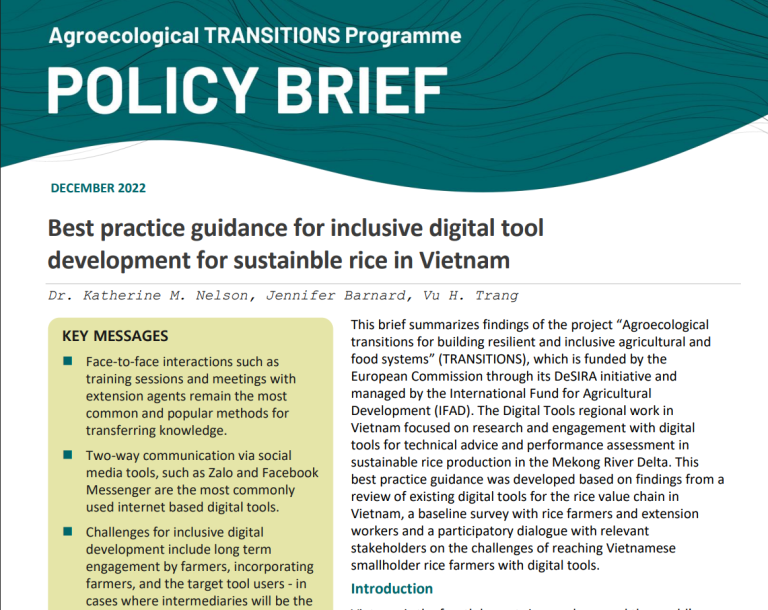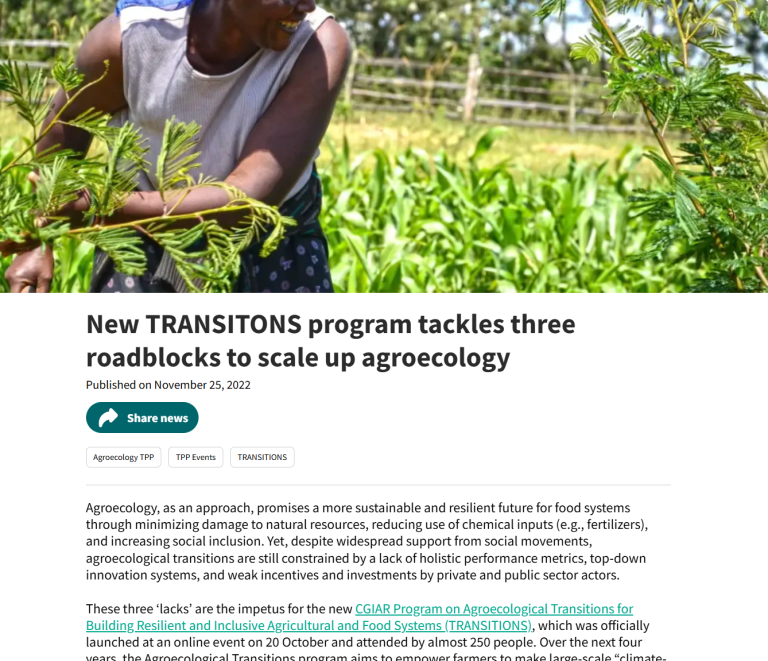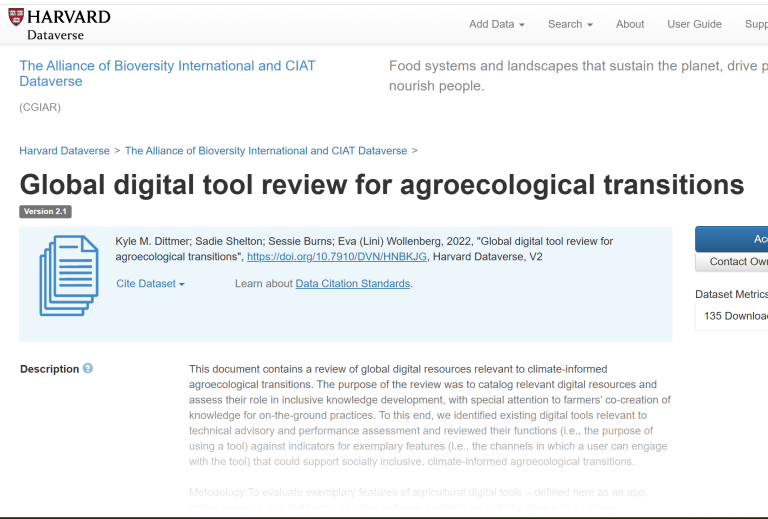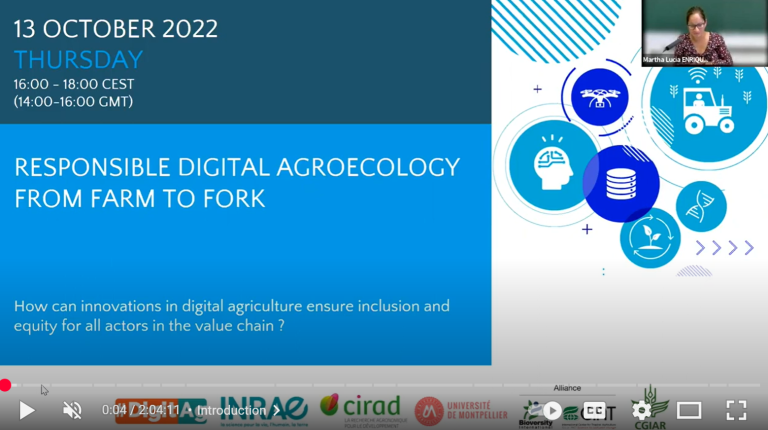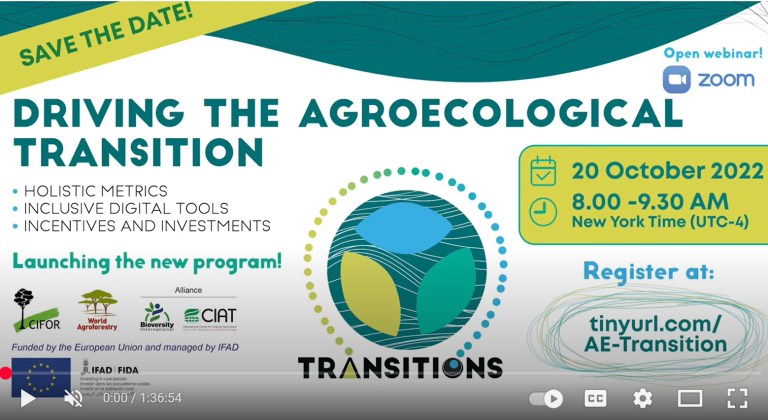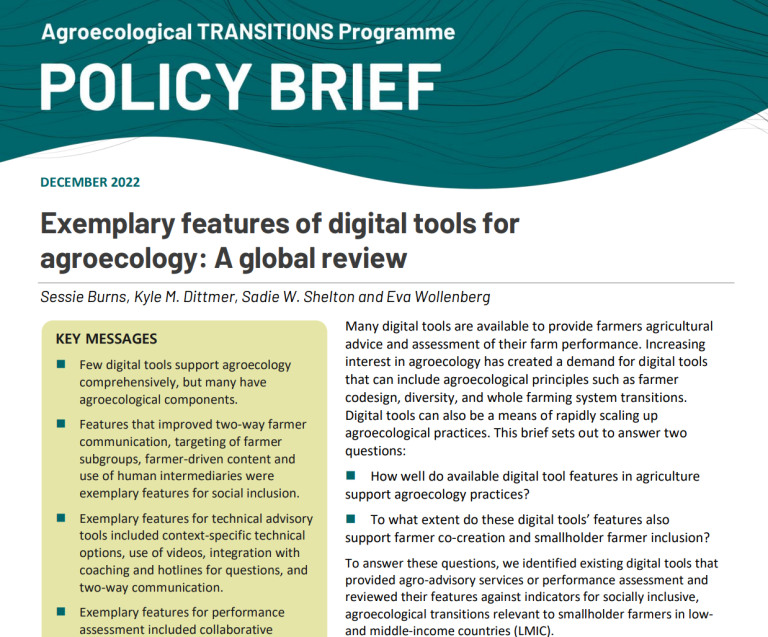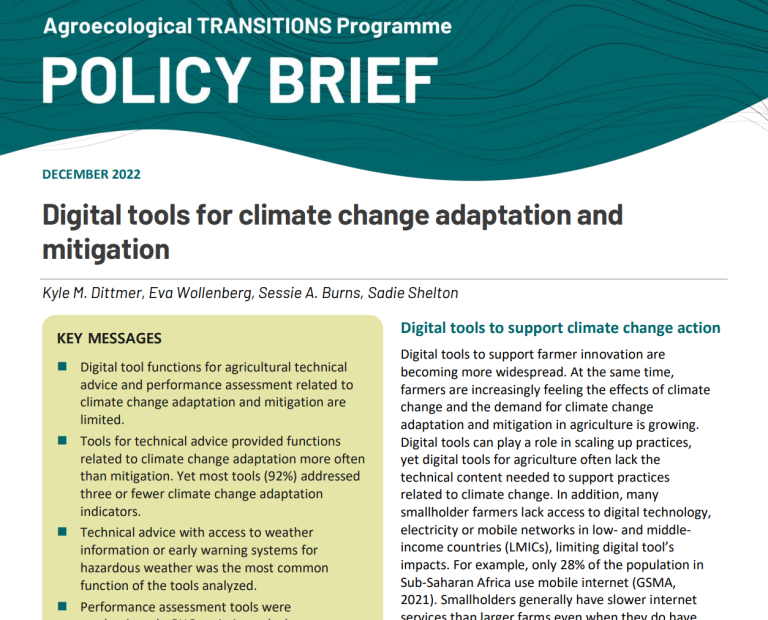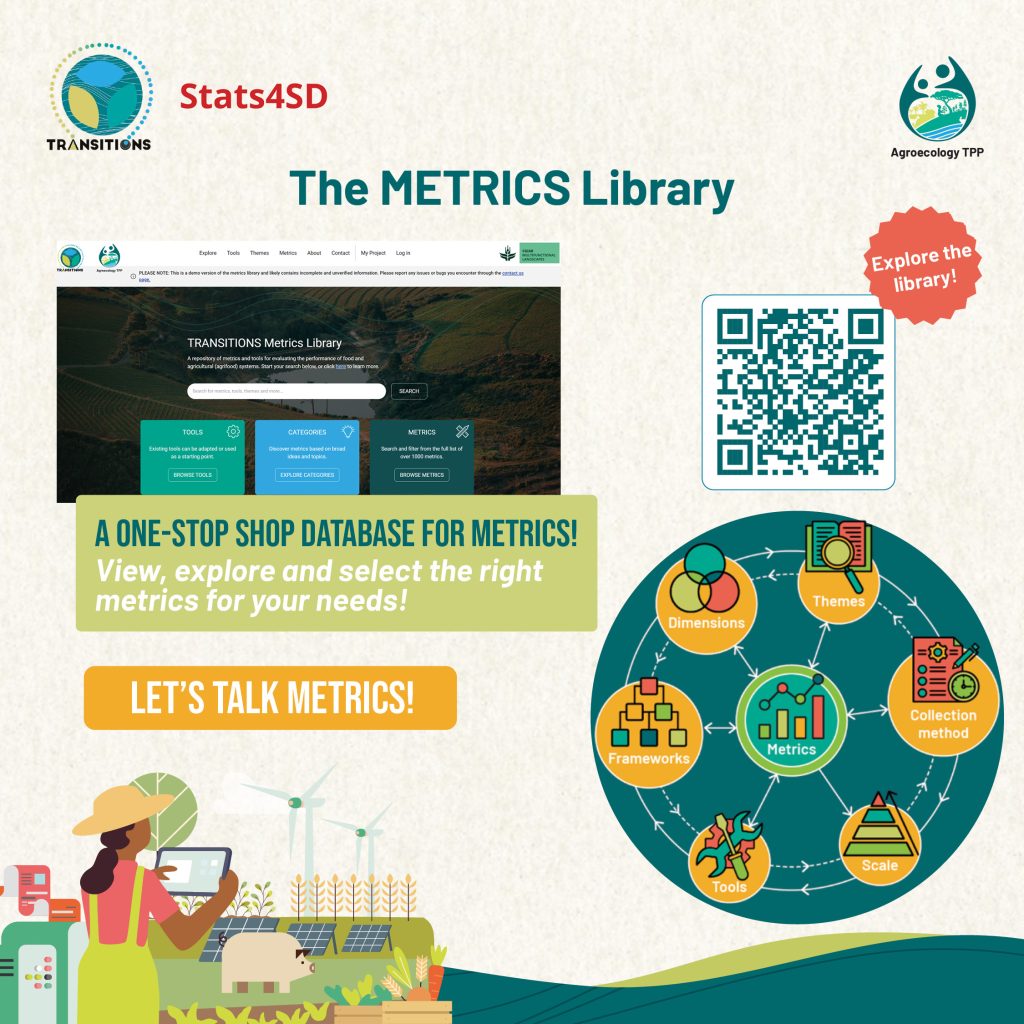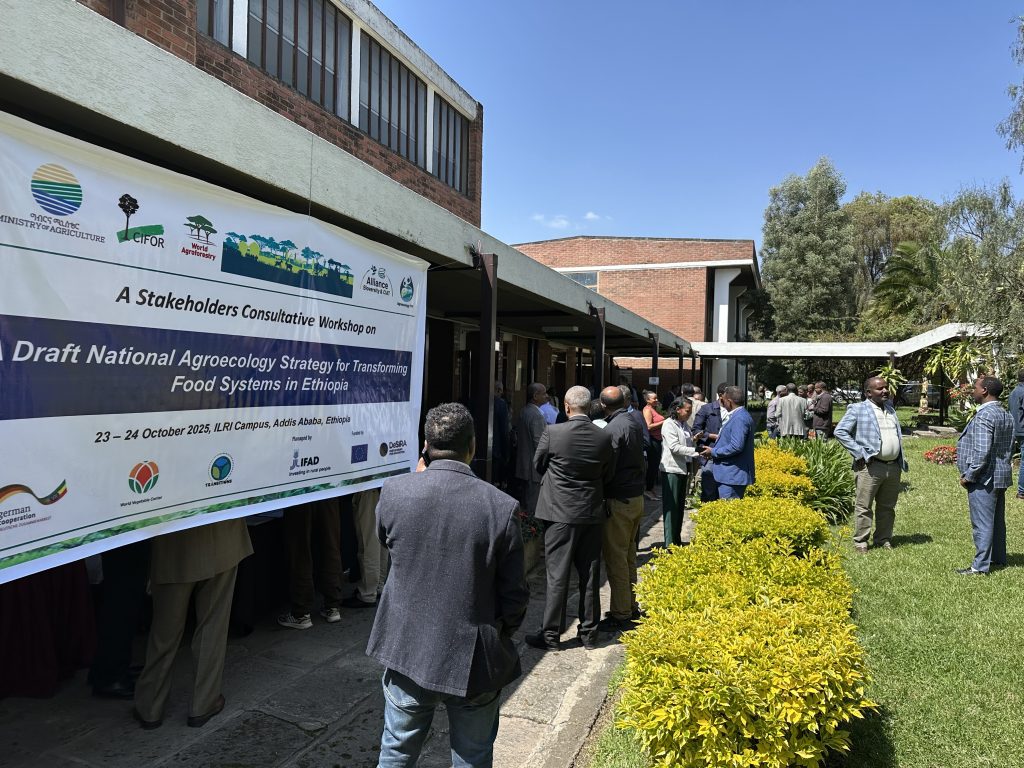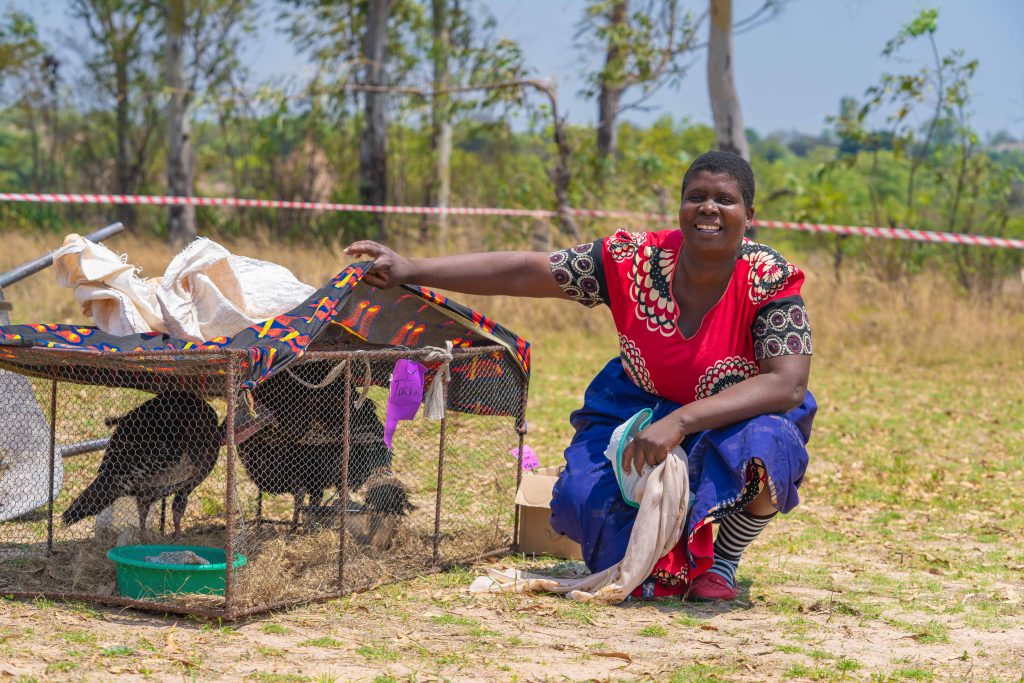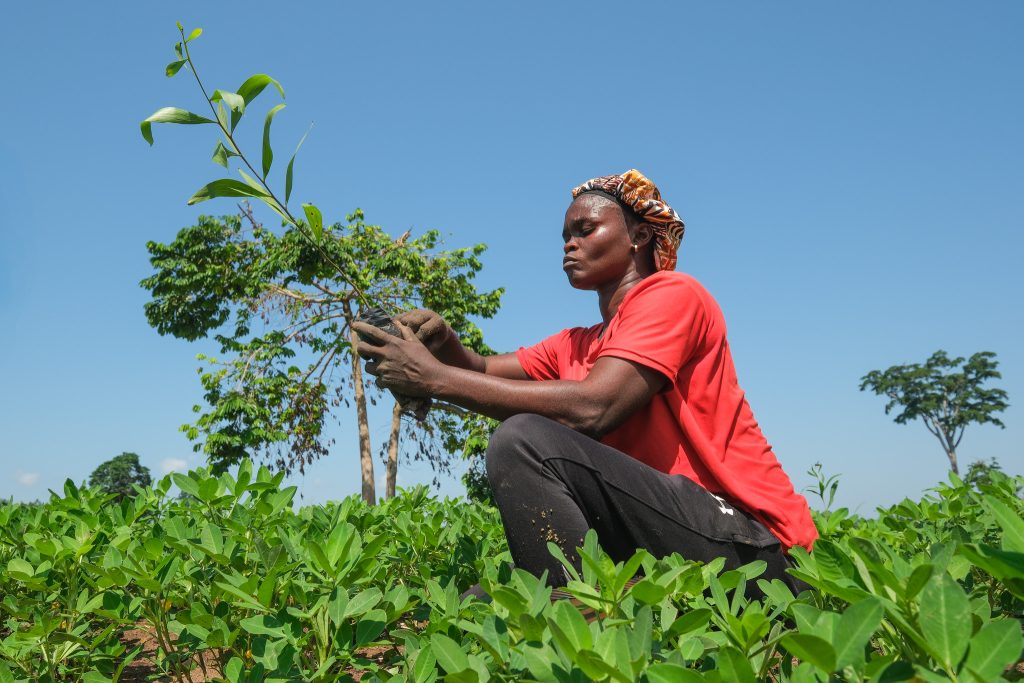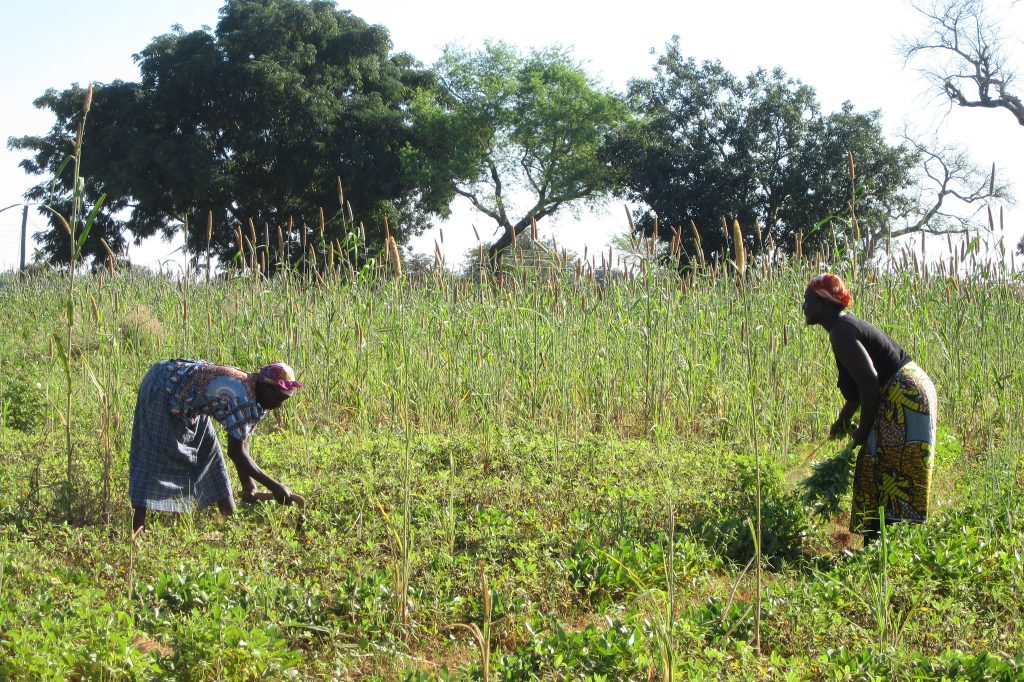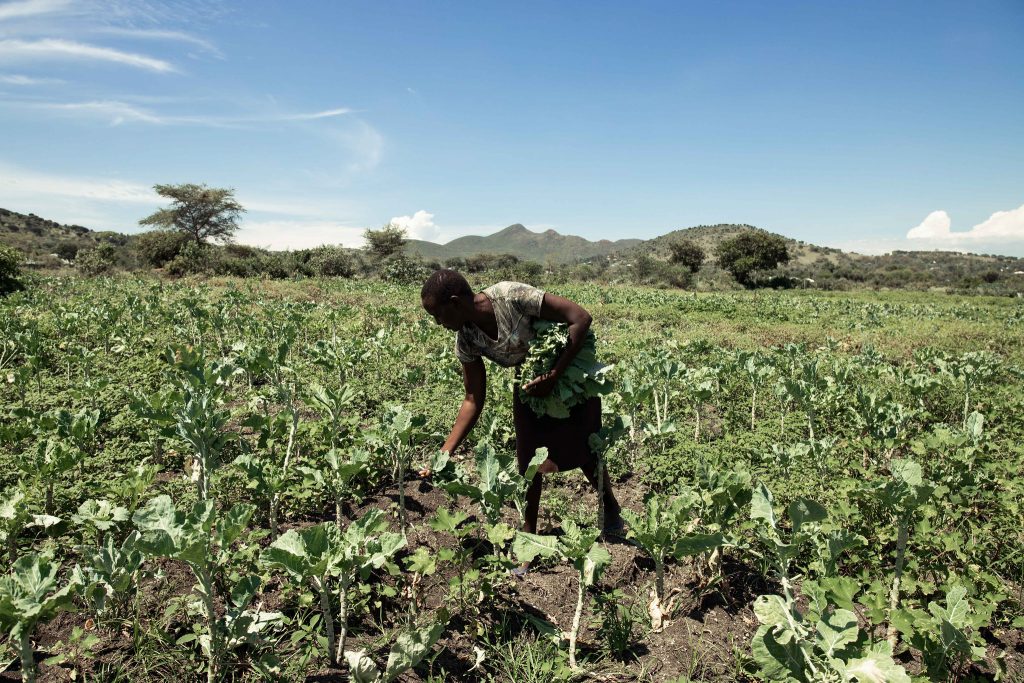The Agroecological Transitions Programme for Building Resilient and Inclusive Agricultural & Food Systems
Introduction
In low- and middle-income countries (LMICs), agricultural investment remains a priority for economic development. Sustainability is a key challenge in LMICs, as many of the current agricultural practices reduce soil fertility and greatly depend on external inputs. Agroecological approaches are increasingly recognized as a means to improve sustainable development of food systems, ensuring the regenerative use of natural resources and ecosystem services, while also addressing the need for more socially equitable decision-making.
Climate-informed agroecological transitions require a multi-faceted support to farmers, enabling them to shift to more sustainable agriculture production systems that increase food security while minimizing negative ecological and human impacts.
Yet, supporting farmers to make the transition to agroecology globally has been constrained by a lack of:
- Metrics to holistically assess agroecology and guide outcome-based policy and investment
- Tools, including digital tools, that provide technical support and performance assessments for practitioners.
- Incentives and investments to support innovative pathways and traceable private-public sector models for agroecology
In addition, current guidance to agroecology has not integrated climate change adaptation and mitigation practices.
Aim
TRANSITIONS aims to enable climate-informed agroecological transitions by farmers at significant scales in LMICs through the development and adoption of 3 parallel workstreams:
- Holistic METRICS for food and agricultural systems performance
- Inclusive Digital Tools
- Traceable Public-Private Sector Incentives and Investments for food systems
Project Scope and Timeline
The Transitions programme runs from 2022-2025 and is being implemented across the following regions:
Asia: India, Vietnam
Africa: Kenya, Ethiopia, Ghana, Burkina Faso
Latin America: Brazil, Peru
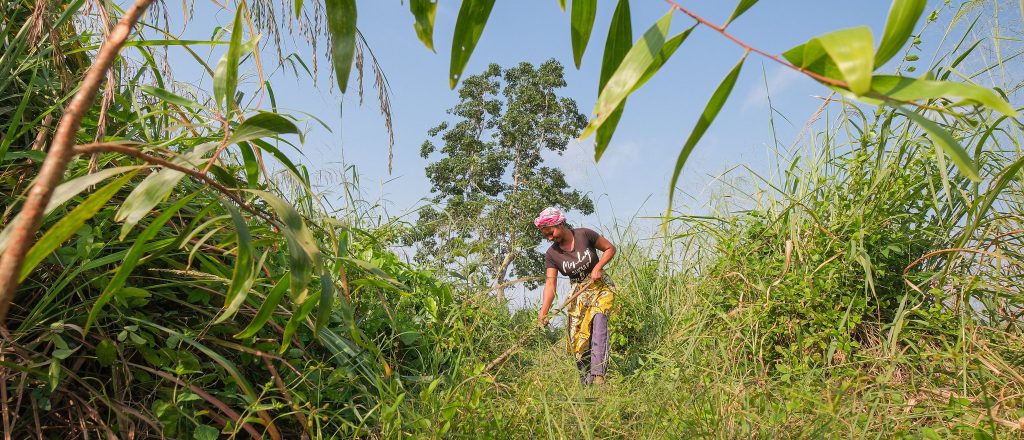
2024 Outcomes Overview
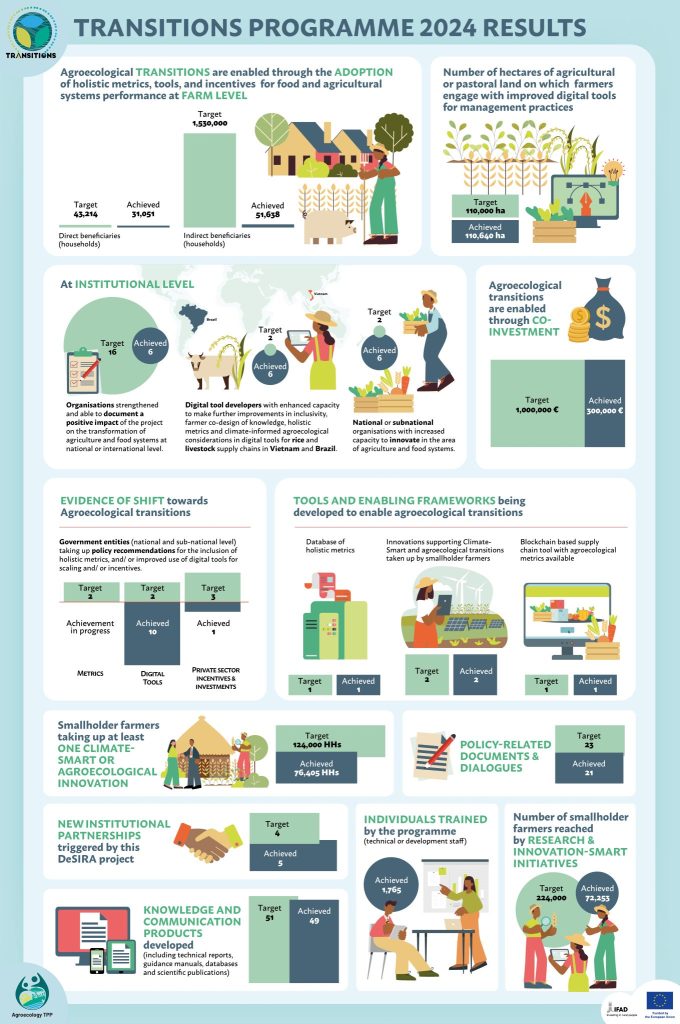
Learn about the results and achievements of the TRANSITIONS Programme in 2024
The Workstreams of the TRANSITIONS Programme
For each of its 3 objectives, Transitions has a dedicated project work stream. These include the following:
1. Holistic METRICS
The Metrics workstream is designed to support agroecological transitions through the development and adoption of holistic metrics and assessments for food and agricultural systems performance. To accelerate the transition towards agroecological approaches, several critical questions need to be addressed, including: how to measure agricultural performance in ways that allow equitable comparison; how to ensure shifts towards agroecology are sustainable and equitable; what roles the public and private sectors should play in such a transition; and what kinds of tools and resources will best support widespread and systemic change.
Contacts
- Matthias Geck (CIFOR-ICRAF): M.Geck@cifor-icraf.org
- Mary Crossland (CIFOR-ICRAF): @M.Crossland@cifor-icraf.org
2. Inclusive Digital Tools (ATDT)
Digital resources in agriculture are changing the way food is produced and have the potential to transform agriculture at large scales. Yet, digital tools are not widely used by smallholders, women, the rural poor and other marginalized groups in low- and middle- income counties (LMICs). The ATDT workstream will evaluate how farmers benefit from using improved digital tools and their potential to generate large-scale impacts for climate-informed agroecology. It will promote innovations related to digital tools and their interfaces that enhance inclusiveness, integrate climate change resilience and mitigation with agroecological aims, and enable farmers to develop new practices.
Project Contact
- Lini Wollenberg (The Alliance Bioversity and CIAT, University of Vermont)
3. Private Sector Incentives and Investments (PSII)
The Private Sector Incentives and Investments (PSii) workstream contributes to the broader TRANSITIONS program objectives and aims at the development of inclusive incentive structures for private sector and private-public stakeholders, as well as leveraging investments supporting agroecological transitions at multiple levels. It will fill persistent knowledge gaps on the role of private and public sector incentives and investments in supporting agroecological transitions for farmers in low- and middle -income countries.
Project Contact
- Jonathan Mockshell (The Alliance Bioversity and CIAT)
Partners
- Alliance Bioversity and CIAT
- Center for International Forestry Research and World Agroforestry (CIFOR-ICRAF)
- International Rice Research Institute (IRRI)
- International Water Management Institute (IWMI)
- University of Vermont
Donors


The TRANSITIONS programme is implemented by The Alliance of Bioversity and CIAT, CIFOR-ICRAF, IRRI, IWMI, The Transformative Partnership Platform on Agroecology, and the University of Vermont. It is generously funded by the European Union and managed by IFAD.
Related Media
Knowledge Products
-
Toolkits
Desenvolvimento de avaliações holísticas dos sistemas alimentares e agrícolas
2025DownloadUma metaestrutura para usuários dos índices. Lamanna. C. et al (2025) The Metrics Metaframework in Portuguese
-
Journal Articles
Agroecology for sustainable development
2025DownloadEvidence on multidimensional performance from a cross-country TAPE assessment in Africa. Adoyo, B., et al (2025) Agroecology is increasingly recognized as a pathway for transforming agrifood systems and advancing progress toward the SDGs. Yet, large-scale, cross-context evidence on its multidimensional performance as framed holistically by the FAO’s 10 Elements remains limited. To address this, the…
-
Presentations
Assessing a diversity of agroecosystems undergoing anagroecological transition
2025DownloadResults of the test of a Prototype method in four use situations in France and in Senegal. Presented by Maryline Darmaun at the Agroecology Science Days, Lausanne 2025
-
News
Ethiopia’s Agroecology Strategy Moves Forward with Expert Contributions
2025Read nowExperts convene to shape Ethiopia’s National Agroecology Strategy, by Eyob Getahun Read the event article on a five-day writeshop organized in August 2025 by the Ethiopian Ministry of Agriculture (MoA), in collaboration with CIFOR-ICRAF, and the Alliance of Biodiversity International and CIAT, to collect expert inputs on the proposed Ethiopia national agroecology strategy.
-
Posters
AE-TPP Knowledge Co-Creation Products
2024DownloadDownload our knowledge co-creation products booklet which highlights all the AE-TPP’s products, activities and value offerings, and includes direct QR codes to each for easy access.
-
News
Beyond the Kenya National Agroecology Strategy: Tracking progress to enable data-driven decision-making
2025Read nowBy Edith Anyango, Beatrice Adoyo, Anne Kuria Overview of a three-day in-person workshop to develop a monitoring and evaluation framework for the NAS-FST. Organized on behalf of the Kenyan Ministry of Agriculture and Livestock Development (MoALD) and facilitated through the Intersectoral Forum on Agroecology and Agrobiodiversity (ISFAA)
-
News
Agroecology Transitions: Building Capacity for Africa’s Food Systems Transformation
2025Read nowBy Daniel Kweitsu Event overview of a four-day hybrid Agroecology co-learning workshop in Kenya organized by the Regional Multi-Actor Research Network (RMRN) Project, funded by the European Commission with technical support from the Joint Research Centre (JRC). The workshop, co-organised with the Agroecology TPP, brought together researchers, partners, and stakeholders from across Africa to strengthen capacity…
-
Posters
13 HLPE Agroecology Principles Leaflet
2025DownloadA handy, easy-to-print leaflet that provides a concise snapshot of the 13 HLPE agroecology principles
-
Videos
Transitions for our Future
2024ViewHosted on 8 February 2024, the ‘Transitions for our future’ Webinar shared key highlights and progress to date from the Agroecological Transitions Programme for Building Resilient and Inclusive Agricultural and Food Systems (TRANSITIONS).
-
Journal Articles
Measuring the holistic performance of food and agricultural systems: a systematic review
2025DownloadCrossland M, Coe R, Lamanna C, Chiputwa B, Orero L, Adoyo B, Kumar S, Mwangi VM, Anyango E, Fuchs LE, Kuria A and Geck M (2025) Front. Sustain. Food Syst. 9:1472109. doi: 10.3389/fsufs.2025.1472109
-
Infographics
TRANSITIONS Infographics
2024DownloadThis infographics displays the complex relationships between the 3 Projects of the TRANSITIONS Program, all working in synergy to advance agroecological transitions. The 3 domains of work are: holistic metrics, digital tools and public and private incentives and investments.
-
Working Papers
Xây dựng đánh giá toàn diệnhệ thống lương thực và nôngnghiệp
2024DownloadKhung tổng hợp cho người dùng chỉ số. Báo Cáo Kỹ Thuật Số 7 (Vietnamese translation of Working paper 4). Lamanna, C.; Coe, R.; Crossland, M.; Fuchs, L.E.; Barahona, C.; Chiputwa, B.; Orero, L.; Adoyo, B.; Geck, M.
-
Working Papers
Développement d’évaluations holistiques des systèmes alimentaires et agricoles
2024TelechargezMéta-cadre à l’attention des utilisateurs d’indicateurs et de mesures. Document de Travail 6 (traducion en français du Document de Travail 4), par Lamanna, C.; Coe, R.; Crossland, M.; Fuchs, L.E.; Barahona, C.; Chiputwa, B.; Orero, L.; Adoyo, B.; Geck, M.
-
Working Papers
Desarrollo de evaluaciones holísticas de sistemas alimentarios y agrícolas
2024DescargarUn metamarco para usuarios de parámetros. Documento de Trabajo 5 (traducción española del Documento de Trabajo 4). Lamanna, C.; Coe, R.; Crossland, M.; Fuchs, L.E.; Barahona, C.; Chiputwa, B.; Orero, L.; Adoyo, B.; Geck, M.
-
Working Papers
Developing holistic assessments of food and agricultural systems
2024DownloadA meta‑framework for metrics users. Lamanna C, Coe R, Crossland M, Fuchs LE, Barahona C, Chiputwa B, Orero L, Adoyo B, Geck M. 2024. Working Paper 4. Bogor, Indonesia and Nairobi, Kenya: CIFOR-ICRAF: The Transformative Partnership Platform on Agroecology.
-
Videos
Increasing farmer’s digital agency for agroecology
2025Watch nowVideo recording of the webinar by the Agroecology TPP and the Agroecological TRANSITIONS Project (ATDT)
-
News
Connected farmers can shift more quickly to agroecology
2025Read nowNews piece on a TRANSITIONS webinar on increasing digital agency for farmers in agroecological transitions
-
Presentations
Assessing a diversity of agroecosystems undergoing anagroecological transition
2025DownloadA presentation on the results of the use of a co-designed assessment method in four use situations in France and in Senegal by Maryline Darmaun at the 1st Mediterranean Agroecology Congress (AEMED 2025) in Sicily, Italy
-
Presentations
Enhancing farmer’s digital agency & co-creation – The FarMoRe experience in Vietnam
2025DownloadPresentation by Trang Vu, International Rice Research Institute, at the “Increasing farmer’s digital agency for agroecology” webinar on 8 May 2025, an event of the Transformative Partnership Platform (TPP) for Agroecology and Agroecological TRANSITIONS Project (ATDT).
-
Presentations
Increasing farmer´s digital agency and cocreation: the Solis experience in Brazil
2025DownloadPresentation by Violaine Laurens, Solidaridad Latin America, at the “Increasing farmer’s digital agency for agroecology” webinar on 8 May 2025, an event of the Transformative Partnership Platform (TPP) for Agroecology and Agroecological TRANSITIONS Project (ATDT).
-
Presentations
Digital agency in agricultural knowledge systems
2025DownloadFostering responsible co-development of digital technical advisory tools. Inclusive Digital Tools Project of Agroecological TRANSITIONS, at the “Increasing farmer’s digital agency for agroecology” webinar on 8 May 2025, an event of the Transformative Partnership Platform (TPP) for Agroecology and Agroecological TRANSITIONS Project (ATDT).
-
News
Ethiopia moves toward a national agroecology strategy
2024Read nowA new national strategy aims to put agroecology at the heart of Ethiopia’s fight against soil degradation and food insecurity. Report of the ministerial meeting on Forest News by Eyob Getahun
-
Journal Articles
Identifying critical incentives for scaling out the adoption of agroecological practices–a systematic review of Peruvian cacao value chains
2025DownloadMockshell, J., Omulo, G., Asante-Addo, C., Ritter, T. N., Quintero, M., & Remans, R. (2025) This study employed a systematic review approach, focusing on Peruvian cacao sector, to explore incentives promoting agroecological practices and their sustainability outcomes
-
Documents
Evidence Note #01
2025DownloadEvidence on why water should be better included into the HLPE 13 agroecology principles
-
Reports
A scoping review of the incentives for promoting the adoption of agroecological practices and outcomes among rice farmers in Vietnam
2025DownloadOgutu S, Mockshell J, Minh T, Remans R (2025) Using the Preferred Reporting Items for Systematic Reviews and Meta-Analyses extension for Scoping Reviews guidelines, a scoping review of 120 articles was conducted to understand the incentives applied for promoting agroecological practices, whether and how the incentives promote the adoption of agroecological practices, and their relationship…
-
Videos
Agroecological Transition: Training material for “low-carbon and safe rice production” in Vietnam
2025Watch nowThis video was produced in the framework of the TRANSITIONS-PSii project activities in Vietnam in collaboration with the local project partner, the private sector company An Dinh. This is a technical and business training for farmer suppliers to An Dinh company.
-
Videos
Multiple agroecological transition pathways for the rice sector in Vietnam’s Mekong Delta Region
2025Watch nowProduced and broadcasted with the VTC16 channel, this video news on multiple Agroecological Transition pathways for the rice sector in Vietnam’s Mekong Delta Region was developed in the framework of the TRANSITIONS-PSii project activities and published in December 2024 in Vietnamese
-
Case studies
Bundled agroecological cacao production practices
2025DownloadFertilizer and sustainable practices training benefits over 200 organic producers Mockshell, J.; Ritter, T.; Blanco, M.A.; Ngige, C.M.; Mosquera, L.E.; Sanchez, J.G.; Ivanova, Y. (2025)
-
Reports
Pathways to Sustainable Wheat Business Models
2025DownloadExploring agroecological practices and investment opportunities in Doyogena, Ethiopia. Mosquera, L.E.; Blanco, M.; Balcha, Y.; Mockshell, J.; Ritter, T. (2025) This report is part of the PSii project and provides an in-depth analysis of three cooperative business models in four wheat clusters, as well as of agroecological practices in Ethiopia
-
Policy Brief
Explorando los modelos de negocio para las transiciones agroecológicas en los cultivos de cacao y camu camu en Ucayali, Perú
2025DownloadBlanco, M.; Mosquera, L.E.; De Los Rios, R.; Crisostomo, D.; Díaz, C.; Ritter, T.; Ivanova, Y.; Mockshell, J.; Sanchez, J.C. (2025) This report provides an in-depth analysis of three cooperative business models in four wheat clusters, as well as of agroecological practices in Ethiopia
-
Presentations
The Transitions Metrics Project
2025DownloadPresentation for the Transitions library and meta-framework webinar organized for AR4D – IFAD on 4 March, 2025
-
Presentations
Metrics and evidence to support agroecological transitions
2025DownloadPresentation on Measuring agroecological transition – tools, methods and experiences at the East Africa Agroecology Conference (EAAEC) 2025 Side-event on 26 March 2025. By Matthias Geck
-
Reports
Pathways to Agrifood System Transformation: From local innovation to policy change
2025DownloadImpact story for DeSIRA Book by Jonathan Mockshell, Thea Ritter, José Sánchez-Choy, Degefie Tibebe This story drives conclusions from the use of incentives in two different countries – Ethiopia and Peru – in which the TRANSITIONS PSii project leverages collaboration with the private sector to scale agroecology innovations.
-
Policy Brief
Co-development enables holistic digital traceability of sustainability. The case of Peruvian cocoa
2025DownloadHidalgo, F.; Jones, S.K.; Sanchez, A.; Ivanova, Y.; Sanchez Choy, J.; Mockshell, J.; Steinke, J. (2025)
-
Case studies
Building resilience: Over 550 Ethiopian wheat producers enabled with bundled sustainable agroecological innovations
2025DownloadMockshell, J.; Degefie, D.T.; Balcha, Y.; Ngige, C.M.; Abdulbari, I.M.; Ritter, T.; Ogutu, S.O. (2025) A case study of how the PSii sustainability project provided bundled agroecological solutions, including faba bean and wheat crop rotation to enhance nitrogen fixation and biodiversity in Doyogena Ethiopia.
-
News
DeSIRA Connect Days Asia & the Pacific 2025 Daily Summaries
2025Read nowFrom the 14-16 of January 2025, 76 participants coming from 17 countries in Asia-Pacific gathered in Hanoi, Vietnam to share and critically reflect on the major achievements of the EU-funded DeSIRA initiative in the region in support of agrifood system transformation and agroecology transition. Read all the daily summaries of the DeSIRA Connect Days 2025…
-
Presentations
Metrics for agroecological transition
2025DownloadPowerPoint presentation as a contribution to the panel on innovation policies and policy innovation at the DeSIRA Connect Days, Vietnam 2025. By Fergus Sinclair
-
Journal Articles
Comparative profitability of agroecological practices in Ethiopian wheat farming
2025DownloadNg’ang’a SK, Ogutu SO, Tibebe D, Akinyi D and Mockshell J (2025) This research evaluates the profitability and risk of adopting agroecological practices among wheat farmers in Ethiopia.
-
Videos
Incentives for Agroecological Transition in Ucayali, Peru: Resilient and Inclusive Systems
2025Watch nowThis video showcases the key milestones and the evolving landscape of agroecological transitions in Ucayali. Spanish with English subtitles
-
Reports
Exploring cacao business models and agroecological transitions in Ucayali, Peru
2024DownloadThis study conducts a meticulous exploration of cacao business models and agroecological transitions in Ucayali, Peru. It provides a deep dive into the operational intricacies of cacao producers. Blanco, M.; Mosquera, L.E.; Crisostomo, D.; Díaz Casana, C.; Ritter, T.; Mockshell, J. (2024)
-
Presentations
Metrics to Support Agroecological Transitions
2024DownloadA meta-framework and database to support diverse metrics users in their journey towards holisticity, by Dave Mills
-
Presentations
Holistic Performance Measurement for Food Systems Transformation
2024DownloadLessons learned from a scoping study in Burkina Faso, Ghana and Tunisia, by Mary Crossland
-
Presentations
Measuring Agroecology and its Performance
2024DownloadKey insights from applying the Tool for Agroecology Performance Evaluation (TAPE) in Benin, Ethiopia, Kenya and Madagascar, by Matthias Geck
-
Presentations
Holistic Localized Performance Assessment
2024DownloadTool for collecting evidence on the impact of Agroecology, by Sarah Jones and Andrea Sánchez
-
Videos
Dialogue #3 Measuring What Matters to Foster Agroecological Transitions
2024Watch nowWatch the full event recording of our fourth dialogue!
-
Presentations
Respondents’ Replies to Dialogue #3 Pre-event Survey Questions
2024Downloadby Fabio Ricci
-
Videos
Residuos a riqueza
2024Watch nowMejorando la salud del suelo con Bocashi en la Transición Agroecológica Ucayali. Blanco Garcia, M.A.; Araujo De Lima, S.; Mosquera Escobar, L.E.; Varon Molina, A.P.; Marulanda Duran, L.A.; Mockshell, J. (2024) ENG Version
-
Reports
REPORTE DE INCENTIVOS E INVERSIONES DEL SECTOR PRIVADO PARA UNA TRANSICIÓN AGROECOLÓGICA EN LA REGIÓN UCAYALI
2024DownloadDe Los Ríos Dantas AR; Saavedra Barria T; Guillén Guevara J. (2024) This report is the result of the assessment of the capacity building needs of agri-food system actors to enable AE transitions in the private sector.
-
Journal Articles
Digital sustainability tracing in smallholder context
2024DownloadEx-ante insights from the Peruvian cocoa supply chain. Jonathan Steinke, Yovita Ivanova, Sarah K. Jones, Thai Minh, Andrea Sánchez, José Sánchez-Choy, Jonathan Mockshell (2024) Through a grounded theory approach, this study explores the potential of digital traceability for sustainability monitoring in a case study in the Ucayali region of Peru.
-
Journal Articles
Reconciling conservation and development requires enhanced integration and broader aims
2024DownloadA cross-continental assessment of landscape approaches. Estrada-Carmona et al., 2024 A study of 380 Landscape approaches (LA) from three continents via questionnaires with landscape managers (2012–2015 and 2021) and the identification of three LA types through cluster analysis
-
News
Advancing Ethiopia’s agricultural transformation
2024Read nowA consultative workshop on developing the National agroecology strategy. By Yodit Balcha, Degefie Tibebe, Zenebe Adimassu, Jonathan Mockshell and Endalkachew Wolde-Meskel
-
Journal Articles
Farming for the future
2024DownloadUnderstanding factors enabling the adoption of diversified farming systems. Andrea Cecilia Sánchez Bogado, Natalia Estrada-Carmona, Damien Beillouin, Cecile Chéron-Bessou, Bruno Rapidel, Sarah K. Jones (2024) This study presents a comprehensive global meta-analysis of 154 peer-reviewed studies analysing factors influencing adoption
-
Posters
Inclusive digital tools for agroecological transitions
2024DownloadATDT Poster, Annual Members Forum Meeting (AMFM)
-
Presentations
National Agroecology Symposium 2024
2024DownloadPresented work from the Metrics domain of the Agroecological TPP (6 November 2024), by Mary Crossland
-
News
Capacity-building for sustainable agricultural production in Ethiopia
2024Read nowBy Jonathan Mockshell; Degefie Tibebe; Mohammed Ebrahim; Yodit Balcha; Lulseged Desta
-
Toolkits
Manual práctico para la elaboración de Bocashi
2024DownloadMosquera, L.; Blanco, M.; Abensur, G.I.; Araujo De Lima, S.; Mockshell, J. (2024) Manual para la elaboración de Bocashi elaborado en el marco del proyecto PSii para las transiciones agroecológicas, para el capacitamiento de los agricultores de las cooperativas de cacao sobre abonos orgánicos
-
Videos
Agroecology Transition: Incentivizing Crop Diversity for Better Soil Health
2024Watch nowThis video – produced by the PSii project (Agroecological TRANSITIONS) in Ethiopia – explores the critical role of crop diversity in enhancing soil health, detailing the benefits of diverse cropping systems such as improved soil structure, nutrient cycling, and beneficial microbial activity.
-
News
Medir lo importante: Parámetros para sistemas agroalimentarios en un planeta finito
2024LeerUn nuevo metamarco para la medición holística del desempeño de sistemas alimentarios y agrícolas. Blog escrito por Monica EvansEvans
-
Policy Brief
Socially inclusive decision support tool for smallholder sustainable intensification and soil health
2024DownloadDittmer, K.M.; Fisher, M.; Ganguly, S.; Snapp, S. (2024)
-
Toolkits
Co-Creation with FarMoRe
2024DownloadCollaborative training for agroecological transition The “Co-Creation with FarMoRe: Collaborative Training for Agroecological Transition” curriculum is designed to empower rice farmers, agricultural field agents, and cooperatives in Vietnam’s Mekong River Delta by integrating agroecological practices with innovative digital tools. Tran, N.B.; Dittmer, K.M.; Cuong, O.Q.; Trang, V.H.; Nelson, K. (2024)
-
Presentations
Harnessing agroecology, agrobiodiversity and family farming to transform food systems and halt biodiversity loss
2024DownloadThe role of incentives and investment. Presented by Mockshell Jonathan for COP16 in Cali (Colombia).
-
Infographics
How blockchain promotes the sustainability of the cacao value chain / Cómo blockchain promueve la sostenibilidad de la cadena de valor del cacao
2024DownloadMockshell, J.; Hidalgo Jaramillo, F.J.; Steinke, J.; Ivanova, Y.; Gutierrez Ortiz, D.E. (2024) Tracking socially and environmentally responsible practices enables consumers to better understand the sustainability behind the process with blockchain technology
-
Reports
Strengthening multi-stakeholder agroecology platforms in Ethiopia: A landscape analysis
2024DownloadBlum, H.; Tibebe, D.; Mockshell, J.; Bergamini, N. (2024) This study aims to map the AMSP landscape, examine their operational activities, and provide recommendations for strengthening private- and public-sector engagement to support long-term agricultural sustainability in Ethiopia
-
Reports
Strengthening multi-stakeholder agroecology platforms in Vietnam: A landscape analysis
2024DownloadTran, D.T.; Thai, T.M.; Dubois, M.; Blum, H.; Mockshell, J. (2024) This study aims to map the AMSP landscape, examine their operational activities, and provide recommendations for strengthening private- and public-sector engagement to support long-term agricultural sustainability in Vietnam.
-
Toolkits
Data for reconciling conservation and development requires enhanced integration and broader aims
2024DownloadA cross-continental assessment of landscape approaches This dataset describes 380 landscape approaches across three continents characterized with the same questionnaire. The data comes from three regional assessments Latin America and the Caribbean. Estrada-Carmona, Natalia, Hart, Abigail K.; Zanzanaini, Camilla, 2024
-
Presentations
Metrics to Support Agroecological Transitions
2024DownloadPresentation at the CGIAR Webinar on Advancing Agrobiodiversity: Metrics, Innovations, and Perspectives for Sustainable Agri-Food Systems on 18 September, 2024. By Mary Crossland.
-
Presentations
Agroecology Science Days at Lausanne University 2024
2024DownloadPresentation showcasing the results from the systematic review of holistic assessments and the Metrics project and Agroecology TPP more broadly (4 October 2024), by Mary Crossland
-
Presentations
Agroecology Leadership Academy 4th Online Exchange
2024DownloadPresentation showing an overview of tools, frameworks and steps for measuring agroecology (12 September 2024), by Matthias Geck
-
News
What’s measured matters: Agrifood system metrics for a finite planet
2024ReadNew meta-framework seeks to help ‘level the playing field’ for holistic approaches. News article by Monica Evans
-
Presentations
CGIAR Webinar on Advancing Agrobiodiversity
2024DownloadMetrics, Innovations and Perspectives for sustainable agri-food systems (18 September 2024). Presented work under the Metrics domain of the Agroecology TPP, including the metrics project, by Matthias Geck
-
Videos
Using digital tools to support climate & agroecological transitions at scale
2024Watch nowOn 10 September 2024, the Agroecological TRANSITIONS program held a webinar to present their experience integrating digital resources and agroecology and explore how digital innovations can empower smallholder farmers and drive sustainable agroecological farming practices globally.
-
Journal Articles
Backcasting supports cross-sectoral collaboration and social-technical innovation bundling
2024DownloadCase studies in agri-food systems. Remans R, Zornetzer H, Mason-D’Croz D, Kugler C, Thornton P, Pedersen C, Cattaneo F, Samantaray D, Brouwer ID, Bosch D, Bekele TH, Martinez S, Ivanova Y, Sanchez-Choy J, Mockshell J, Bergamini N, Tibebe D, Balcha Y, Ebrahim M, Misiko M, Sainepo B, Magesa R, Aynekulu E and Herrero M (2024)…
-
News
Training on Climate-Smart Agriculture and Agroecological Practices
2024Read nowBy Zenebe Adimassu, Degefie Tibebe
-
News
¿Qué se necesita para acelerar la transición hacia la agroecología?
2024LeerExpertos comparten avances sobre indicadores, herramientas digitales, incentivos e inversiones en apoyo de la agroecología. Blog escrito por Monica Evans
-
News
Collaborative Learning and Joint Creation Workshop on Agroecological Transitions in Ethiopia
2024Read nowBy Yodit Balcha, Degefie Tibebe, Nadia Bergamini, Roseline Remans, Jonathan Mockshell
-
Policy Brief
Are the metrics that companies use effective for monitoring supply chain sustainability?
2024DownloadA closer look at cocoa and rice. Jones, S.; Sanchez, A.; Wickramaratne, C.; Wakaabu, D.; Ivanova, Y.; Minh, T.; Mockshell, J.; Sanchez Choy, J.; Steinke, J. (2024)
-
News
Measuring the impact of agroecology on food security
2024ReadTesting a novel methodology across five countries in sub-Saharan Africa, by Monica Evans
-
Reports
Principles for socially inclusive digital tools for smallholder farmers: A guide
2024DownloadDittmer, K.M.; Burns, S.; Shelton, S.; Wollenberg, E. (2024) This guide addresses concerns with the current digitalization of food systems by providing principles for developing socially inclusive digital tools with smallholder farmers.
-
Policy Brief
Capacity-strengthening pathways enabling agroecological transition in Vietnam’s rice sector
2024DownloadAgroecological Transitions Program Policy Brief. PSii Project. Minh, T.T.; Tran, D.T.; Dubois, M.; Bergamini, N.; Mockshell, J. (2024)
-
News
Transforming Ethiopian Food Systems
2024Read nowLeveraging Private Sector Incentives to Drive Agroecological Wheat Production. By Yodit Balcha, Degefie Tibebe, Mohammed Ebrahim, Viviane Filippi and Jonathan Mockshell
-
Presentations
Metrics: Measuring what matters to support agroecological TRANSITIONS
2024DownloadA presentation on the Metrics project at the 2024 Annual Members Forum Meeting in Nairobi, Kenya by Matthias Geck
-
Policy Brief
Digital tools for supporting climate-informed agroecological transition in beef production in Brazil
2023DownloadHeissler, G.H.; Lazzari, H.E.; Barbosa de Souza, P.; Costa, A.C.; Silveira, R.F.; Dittmer, K.M.; Suber, M.; Micollis, A.; Terra, M.; Angioni, C.; Costa, C.Jr (2023)
-
Reports
Field testing digital tools in sustainable rice production in the Mekong Delta, Vietnam
2023DownloadBarnard, J., Cuong, O. Q., Nguyen K. D., Vu, H.T., Nelson, K.M., 2023 This report summarizes findings from the project “Agroecological transitions for building resilient and inclusive agricultural and food systems (TRANSITIONS)”
-
Policy Brief
Co-creation applied to digital innovations for smallholder farmers: An example from Brazil
2023DownloadLaurens, V.; Oliveira, D.; Wollenberg, E.; Shelton, S. (2023)
-
News
Entre saberes y sabores
2023Read nowel camino hacia la agroecología Blog by Elizabeth further Ramirez to fieldwork performed in November 2023 during co-learning events and Agroecological Roadshow (14-15 Nov. 2023). ENG Version
-
News
How to integrate Agroecological Principles into Peru’s Cacao Business Model for Sustainable and Resilient Agriculture
2023Read nowThis blog explores how Peruvian cacao farmers naturally integrate agroecological principles into their production, shedding light on the path towards resilient food systems. By: Diego Crisostomo, Maria Blanco, Leslie E. Mosquera, Thea Ritter, and Jonathan Mockshell
-
Reports
Strengthening multi-stakeholder agroecology platforms in Peru: A landscape analysis
2023DownloadThis study aims at mapping the AMSP landscape, examining operational activities, and providing recommendations for strengthening greater private and public sectors engagement to support long-term sustainability in Peru. Blum, H.; Mockshell, J.; Ivanova, Y.; Bergamini, N.; Remans, R. (2023)
-
Posters
Factors associated with the adoption of diversified farming systems
2023DownloadA global meta-analysis (tropentag.de) Poster presented by Andrea Sanchez at the annual interdisciplinary conference on research in tropical and subtropical agriculture, natural resource management and rural development (Tropentag) on 22 September 2023 during the session “Social dynamics of food systems transformation”
-
Policy Brief
Can digital value chain tracing drive the sustainability transition?
2023DownloadA closer look at Peruvian cocoa Policy Brief produced by Component 2 team of Psii project. Steinke, J.; Ivanova, Y.; Jones, S.; Minh, T.T.; Sanchez Bogado, A.C.; Sanchez Choy Sanchez, J.G.; Mockshell, J. (2023)
-
Working Papers
TRANSITIONING TO AGROECOLOGICAL FOOD SYSTEMS
2023DownloadA review of incentives for adoption of agroecological practices and outcomes. This scoping review examines incentive mechanisms in agroecology practice adoption and outcomes using a general survey of the literature and a specific case study of incentives in wheat value chains in Ethiopia. Mockshell, J.; Ogutu, S.; Alvarez, D.; Nielsen, T.; Steinke, J.; Remans, R.;…
-
Reports
Use of digital tools in sustainable rice production in the Mekong Delta, Vietnam
2023DownloadBarnard, J.; Cuong, O.Q.: Vu, H.T.: Nelson, K.M. (2023) This report summarizes findings from a study on digital tool use among rice farmers in Vietnam for
-
News
Peruvian producers are banking on cacao with the aroma of sustainability
2023Read nowBy Elizabeth Ramirez
-
Toolkits
Brazil digital tool review for agroecological transitions
2023DownloadHeissler, G.H.; Lazzari, H.E.; Barbosa de Souza, P.; Costa, A.C.; Silveira, R.F.; Dittmer, K.M.; Ciniro Costa, J. (2023) This document contains a review of digital resources relevant to climate-informed agroecological transitions for the beef cattle sector in Brazil.
-
Reports
Systematic review of digital resources for climate-informed agroecological transitions in rice in the Mekong Delta
2022DownloadBarnard, J., Vu, H.T. and Nelson, K. (2022) This report summarizes findings from the review of digital resources for climate-informed agroecological transitions in rice in the Mekong Delta in Vietnam.
-
Reports
Principles for socially inclusive digital tools for smallholder farmers: A guide
2022DownloadDittmer, K.M.; Burns, S.; Shelton, S.; Wollenberg, E. (2022) .This guide seeks to address concerns with the current digitalization of food systems with a set of principles to instruct development and implementation of socially inclusive digital tools with smallholder farmers.
-
Reports
Global digital tool review for agroecological transitions
2022DownloadBurns, S.; Dittmer, K.M.; Shelton, S.; Wollenberg, E. (2022) This report summarizes a global review of digital resources relevant to climate change-informed agroecological transitions. The goal of the review was to identify exemplary features of digital tools for socially inclusive and climate-informed agroecological transitions.
-
Policy Brief
Key actions to develop inclusive digital resources for smallholder cattle ranchers in Brazil
2022DownloadFreixêdas, V.M.; Moraes, F.C.; Costa, C. Jr.; Suber, M.; Dittmer, K.M. (2022) This brief presents results of a stakeholder consultation carried out in October and November 2022 with the objective of understanding key areas, principles and priority actions to guide the development of inclusive digital resources for smallholder cattle ranchers in Brazil.
-
Policy Brief
Socially inclusive digital tools for agriculture: A way forward
2022DownloadDittmer, K.M.; Wollenberg, E.; Burns, S. (2022)
-
Videos
The TRANSITIONS Inclusive Digital Tools (ATDT)
2022Watch nowIn this informal expert workshop, the TRANSITIONS Inclusive Digital Tools (ATDT) project reviewed and received feedback from stakeholders and experts on proposed guidance for smallholder farmer’s inclusion and co-creation of farm practices for agroecology and climate change action
-
Reports
Improving rice sustainability through digital tools
2022DownloadBarnard, J.; Vu, H.T.; Nelson, K.M. (2022) To provide a platform for dialogue among the stakeholders on the challenges of reaching Vietnamese smallholder farmers with digital tools, the International Rice Research Institute (IRRI) organized a webinar titled ‘Improving Rice Sustainability through Digital Tools’
-
Videos
Farmer Co-Design of Climate Change Solutions: GDDF 2022 Side Session
2022Watch nowIn the webinar, Farmer co-design of climate change solutions, researchers highlighted examples of digital resources that could enable farmers to co-design practices and support more bottom-up approaches to climate change mitigation and agroecology. More on the webinar
-
Policy Brief
Critiques of digital tools in agriculture
2022DownloadChallenges and opportunities for using digital tools to scale agroecology by smallholders Shelton, S.W.; Gehan, C.; Wollenberg, E.; Costa Jr, C.; Burns, S.; Rowland, B. (2022)
-
Reports
Livestock practices, use of digital tools and co-design and flow of information
2022DownloadBrazil baseline assessment in the region of Novo Repartimento (Pará State, Brazil). Costa Jr., C.; Suber, M.; Dittmer, K.; Miccolis, A.; Terra, M.; Oliveira, D.; Lima, P.; Laurens, V. (2022) This report presents a study on major livestock practices, the use of digital tools, and the flow of information that have been carried out among…
-
Policy Brief
Best practice guidance for inclusive digital tool development for sustainable rice in Vietnam
2022DownloadNelson, K.M.; Barnard, J.; Vu, H.T. (2022) This brief summarizes findings of the project “Agroecological transitions for building resilient and inclusive agricultural and food systems” (Transitions)
-
Toolkits
Global digital tool database for agroecological transitions
2022DownloadDittmer, K.M.; Shelton, S.W.; Burns, S.; Wollenberg, E. (2022) This database contains a sample of global digital resources relevant to climate-informed agroecological transitions. Its purpose was to catalog relevant digital resources and assess their role in inclusive knowledge development, with special attention to farmers’ co-creation of knowledge for on-the-ground practices.
-
Videos
Responsible Digital Agroecology from Farm to Fork
2022Watch nowHow can innovations in digital agriculture ensure inclusion and equity for all actors in the value chain? Side Event of FAO Science and Innovation Forum 2022, organised by #DigitAg and CGIAR, held on 13 October 2022.
-
Videos
Driving the Agroecological Transition
2022Watch nowOn 20 October 2022, the Agroecology TPP together with Alliance Bioversity International – CIAT, CIFOR-ICRAF, and the Gund Institute – University of Vermont, held a webinar on ‘Driving the Agroecological Transition’, which marked the launch of the four-year CGIAR’s Agroecological Transitions research programme.
-
Policy Brief
Exemplary features of digital tools for agroecology: A global review
2022DownloadBurns, S.; Dittmer, K.M.; Shelton, S.W.; Wollenberg, E. (2022)
-
Policy Brief
Digital tools for climate change adaptation and mitigation
2022DownloadDittmer, K.M.; Wollenberg, E.; Burns, S.; Shelton, S. (2022)

